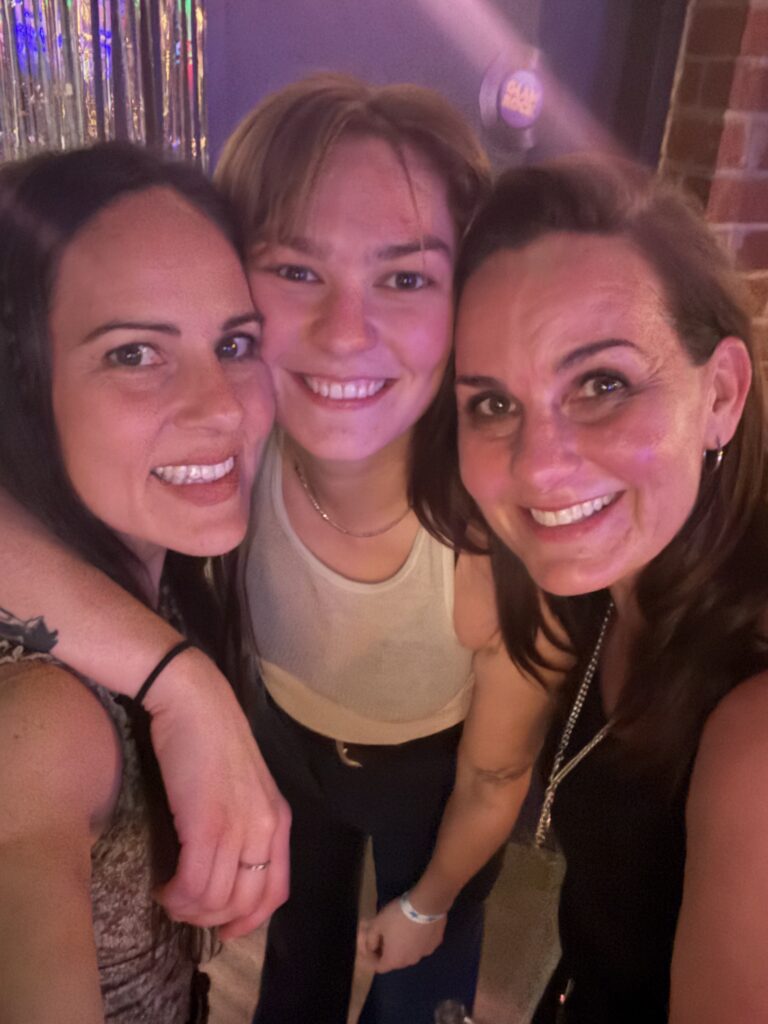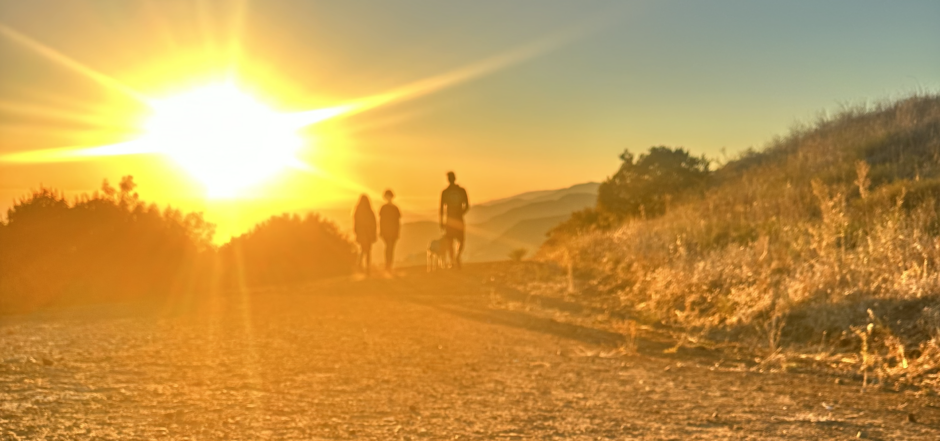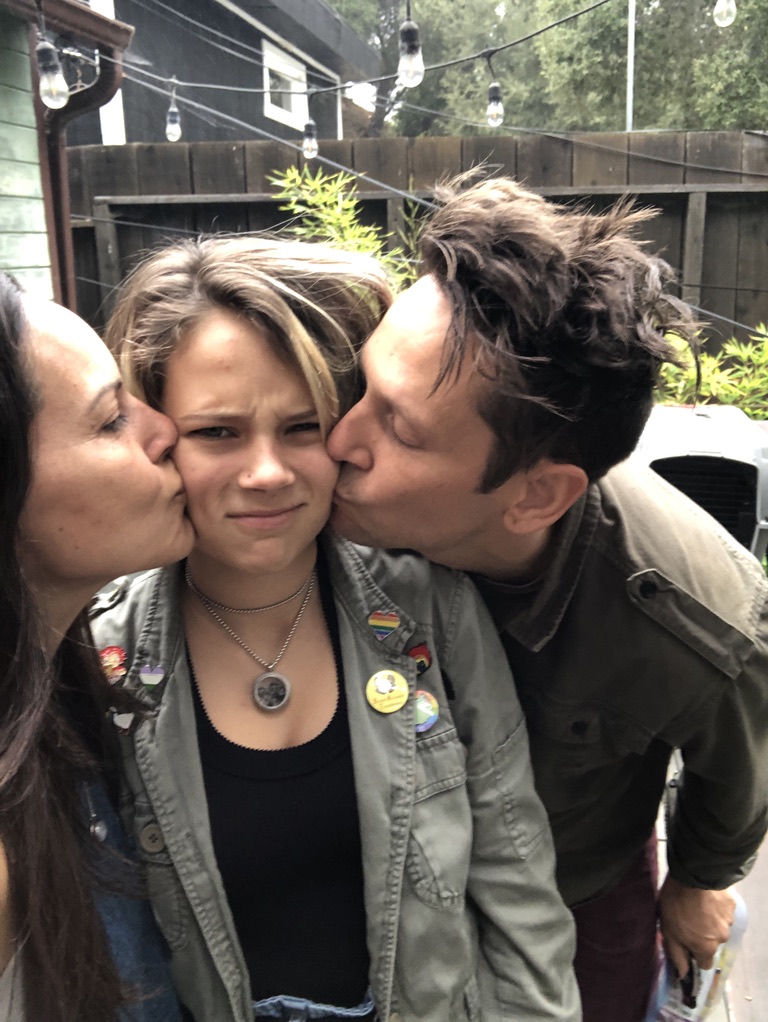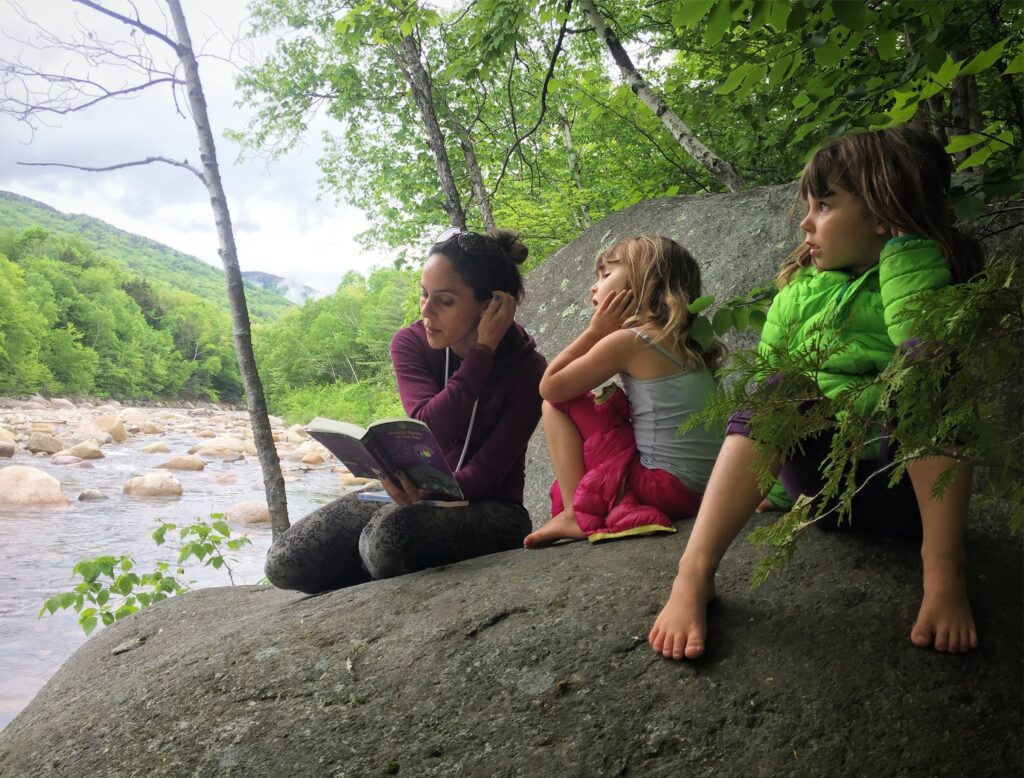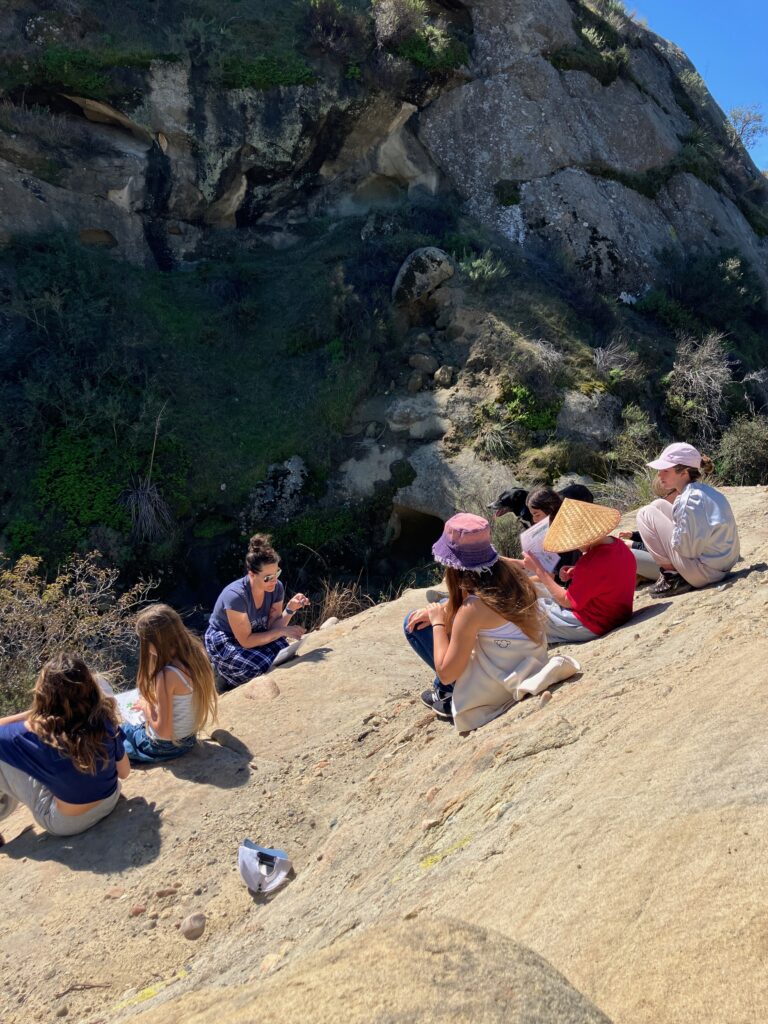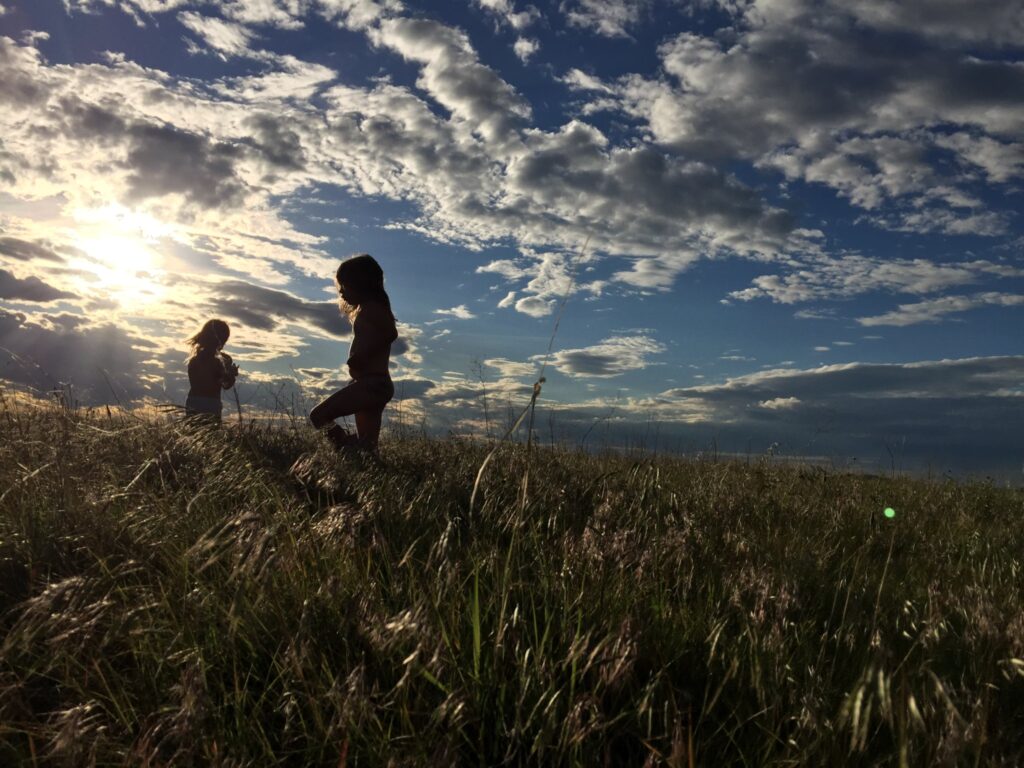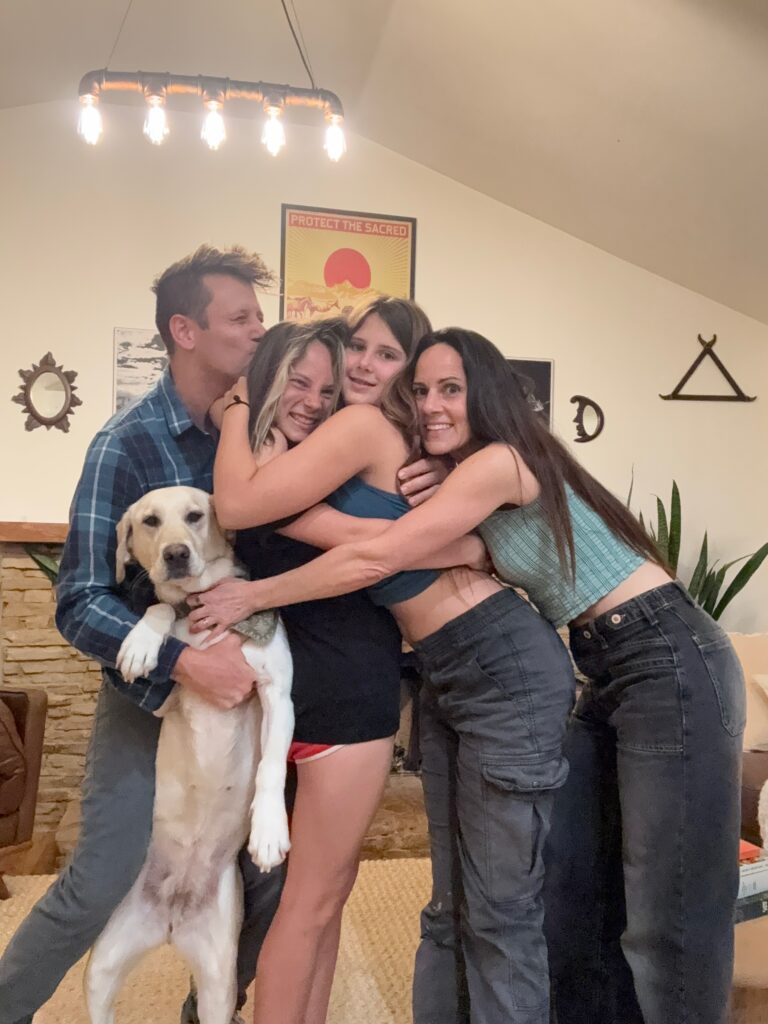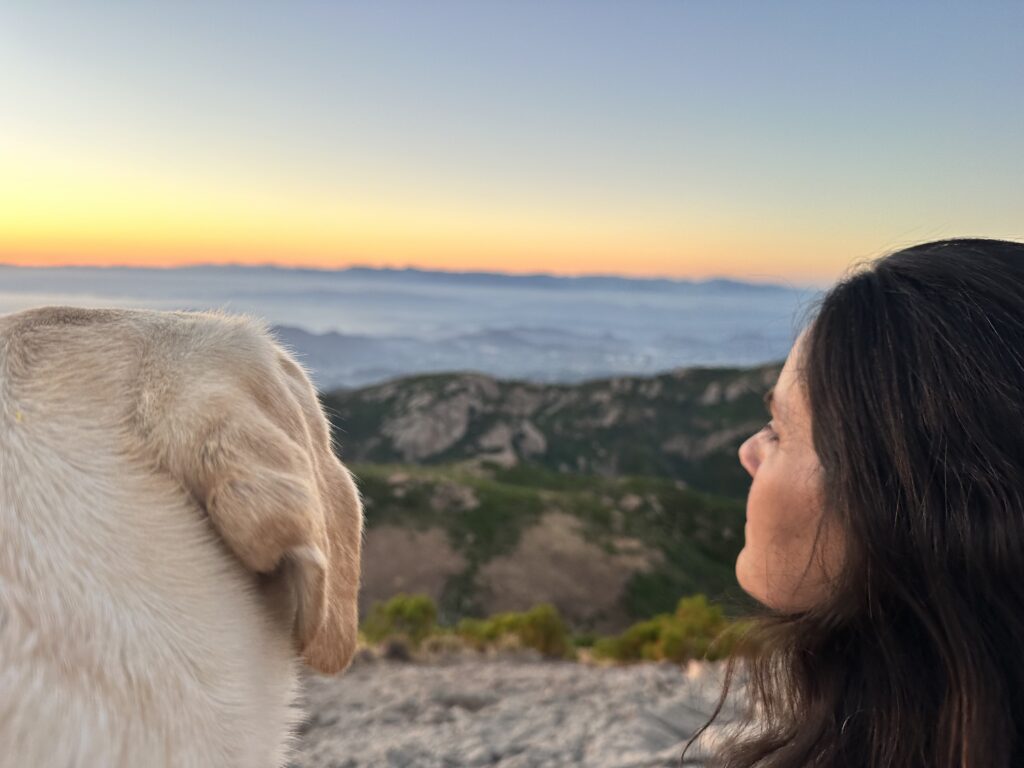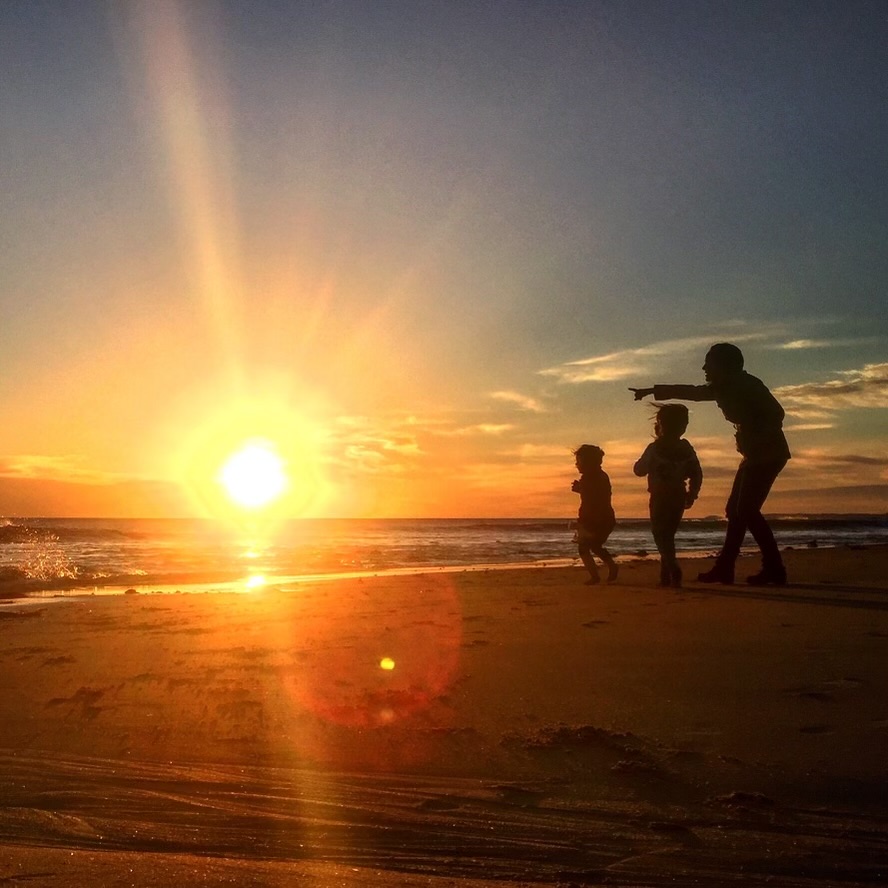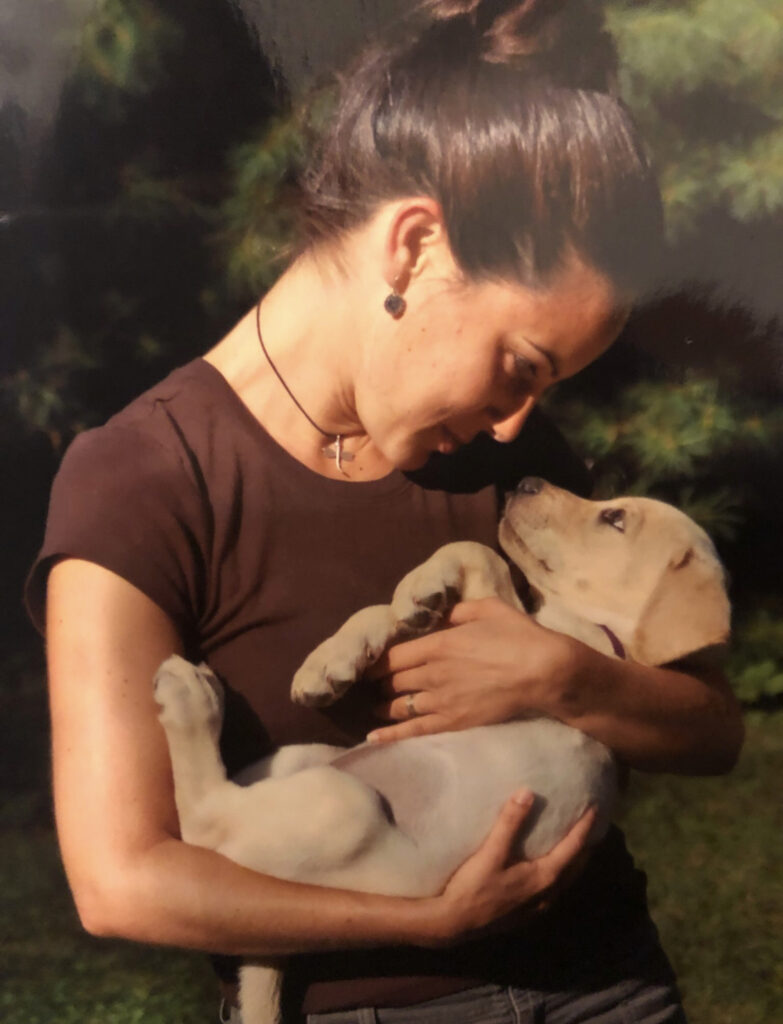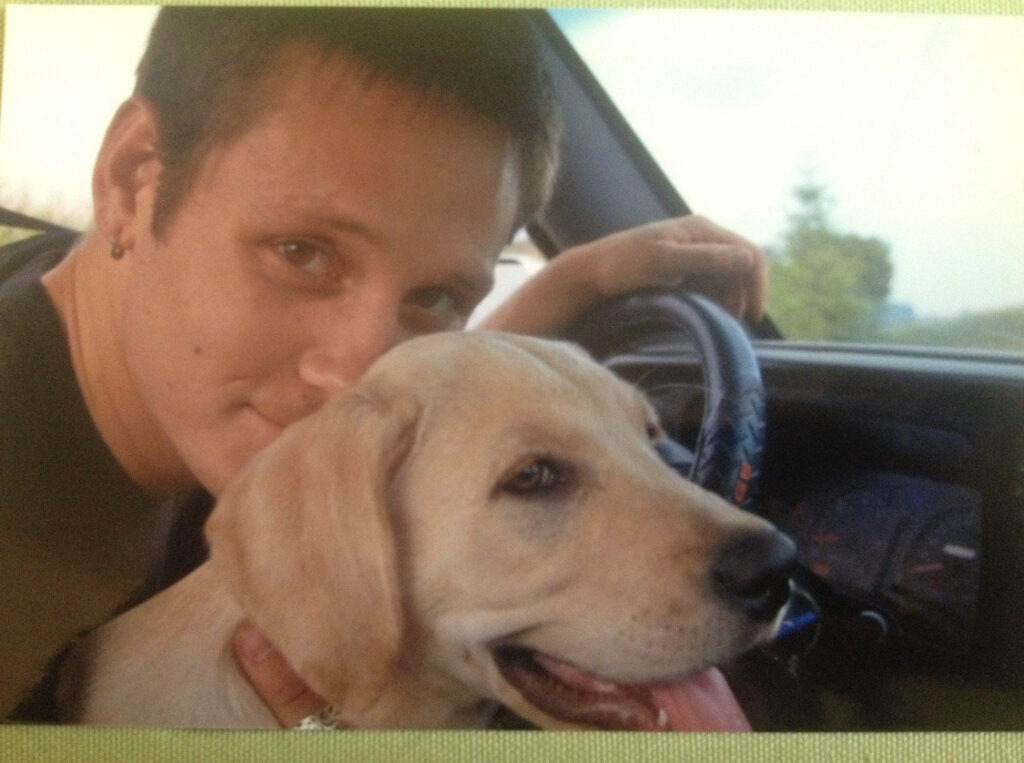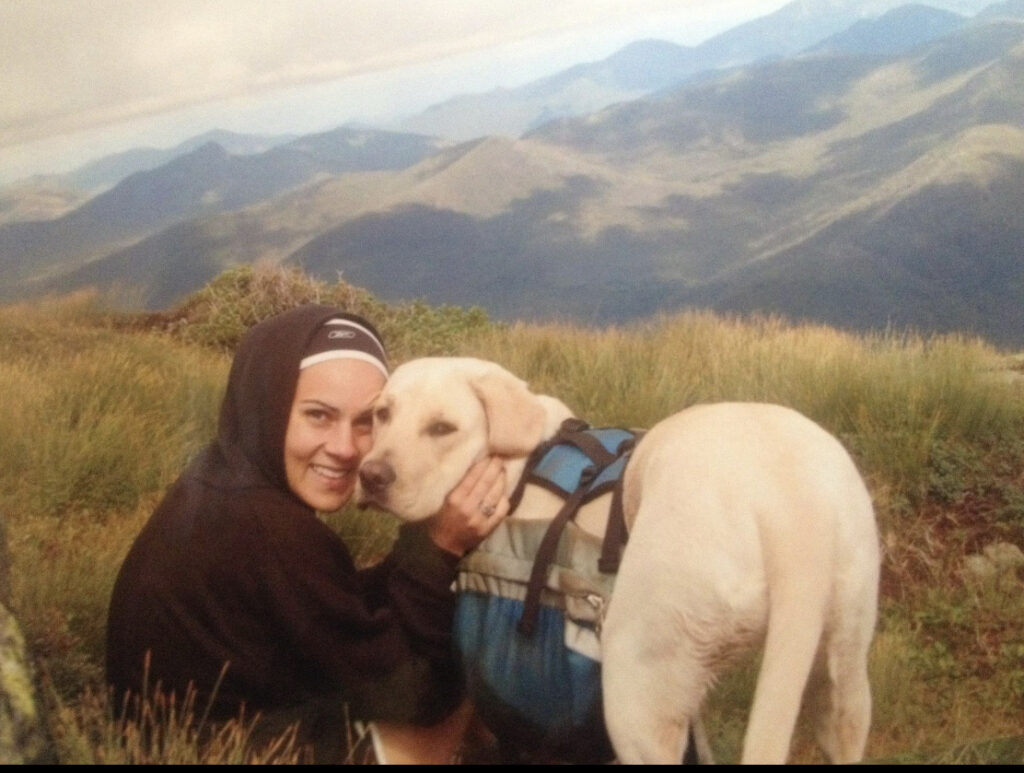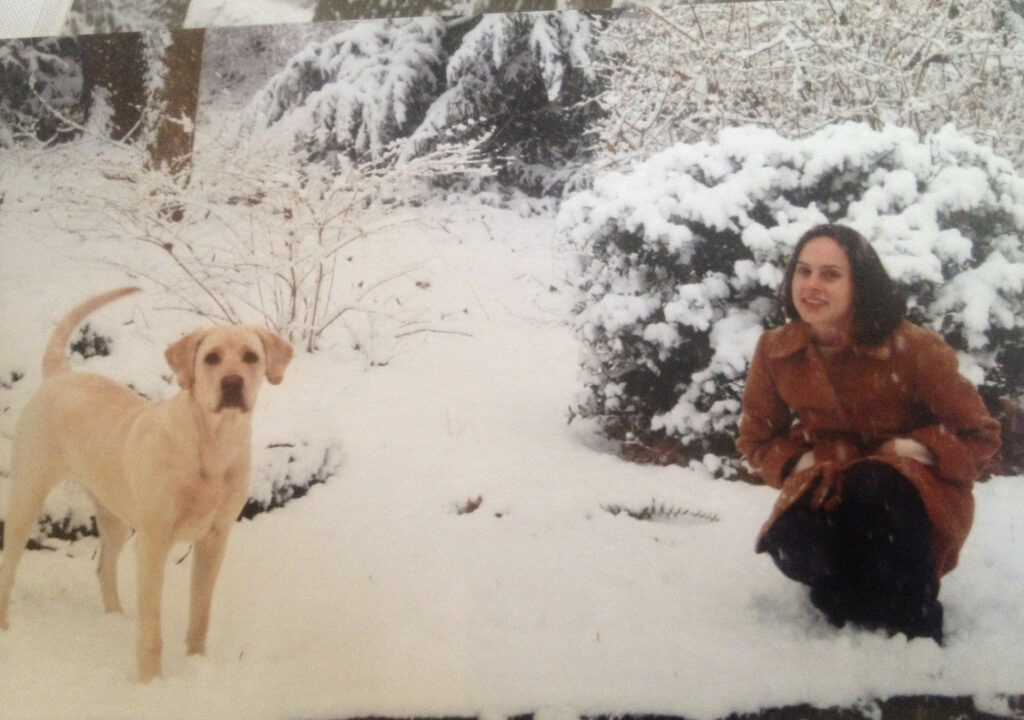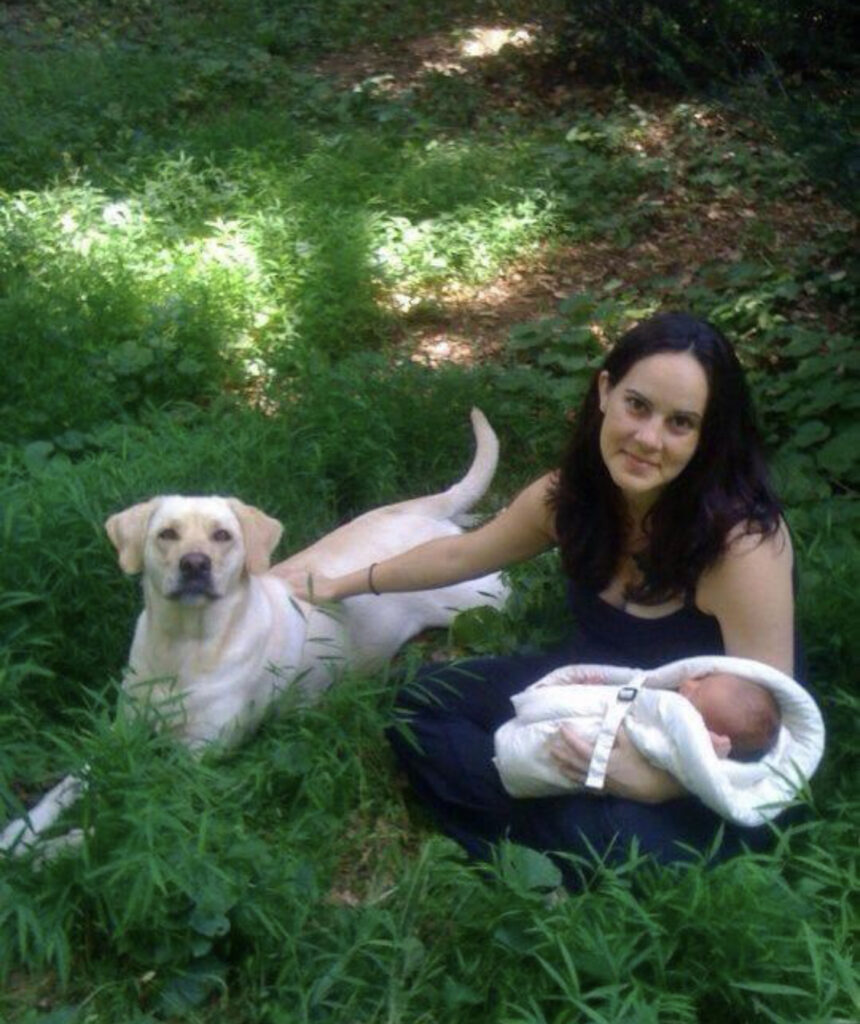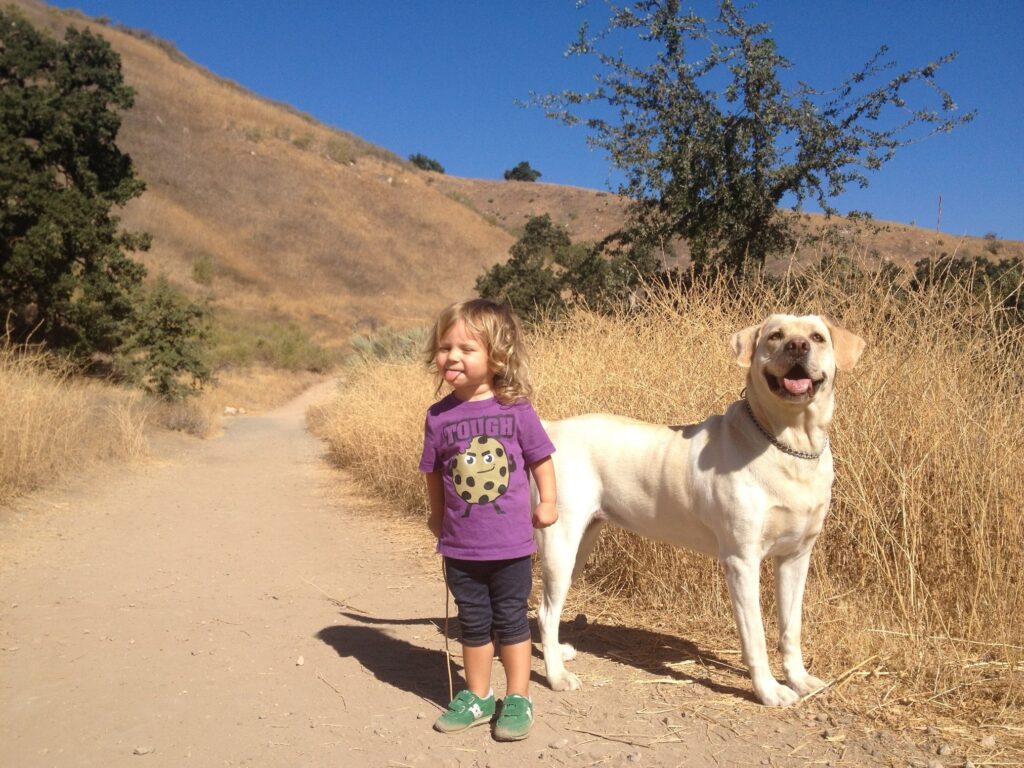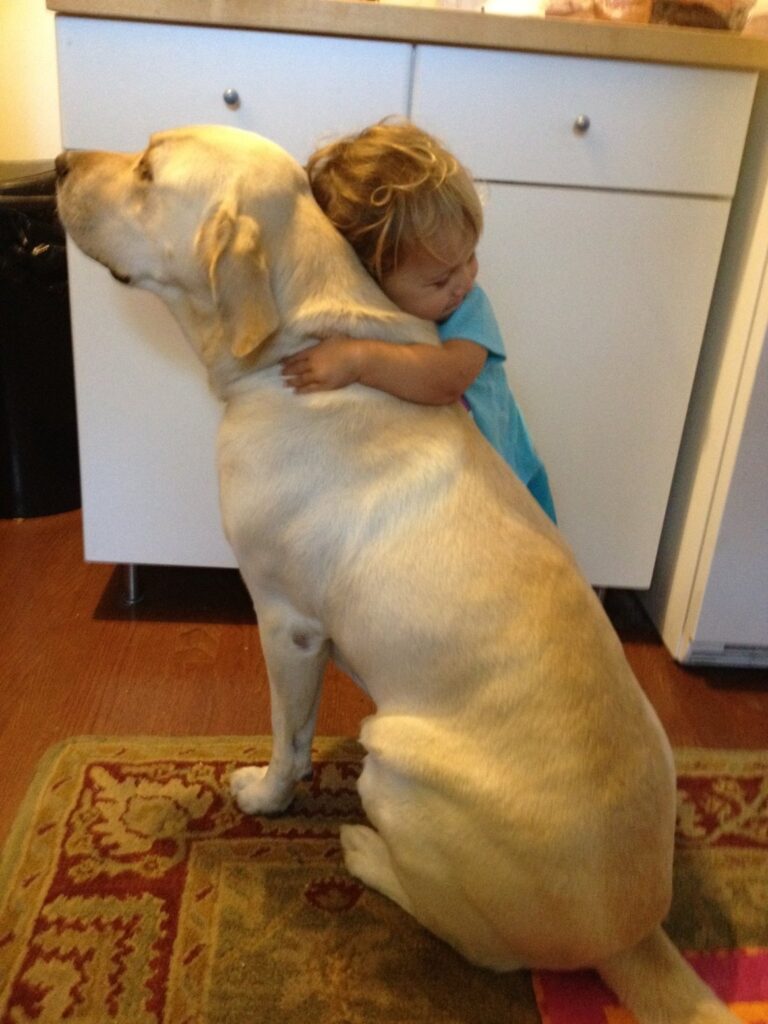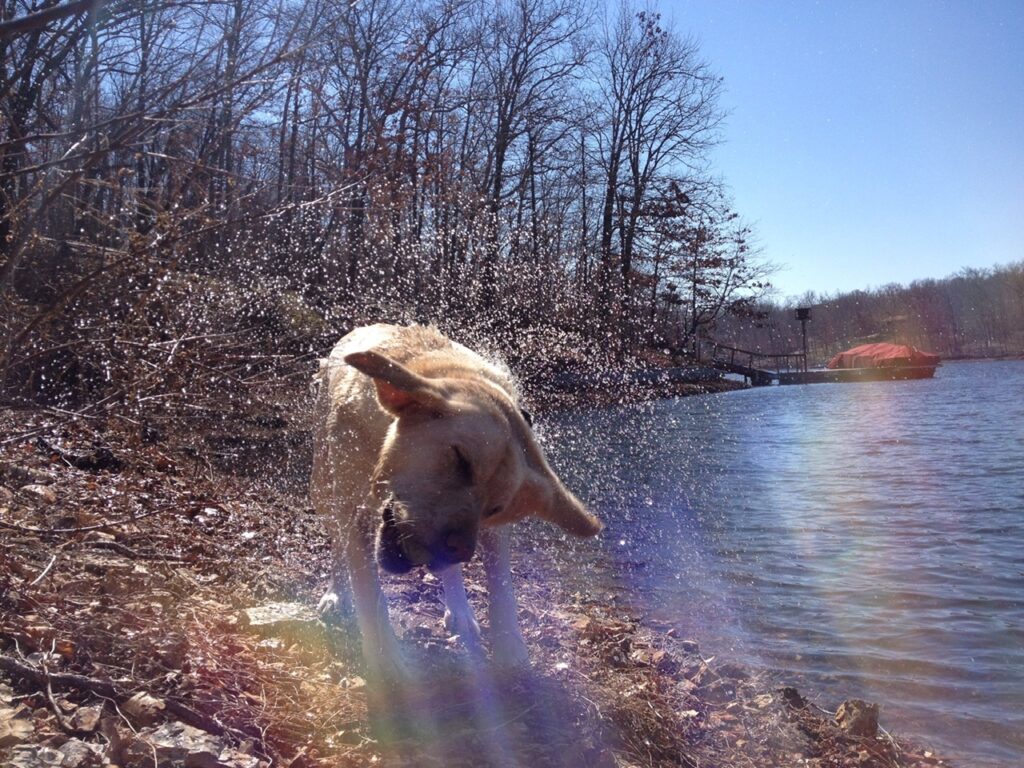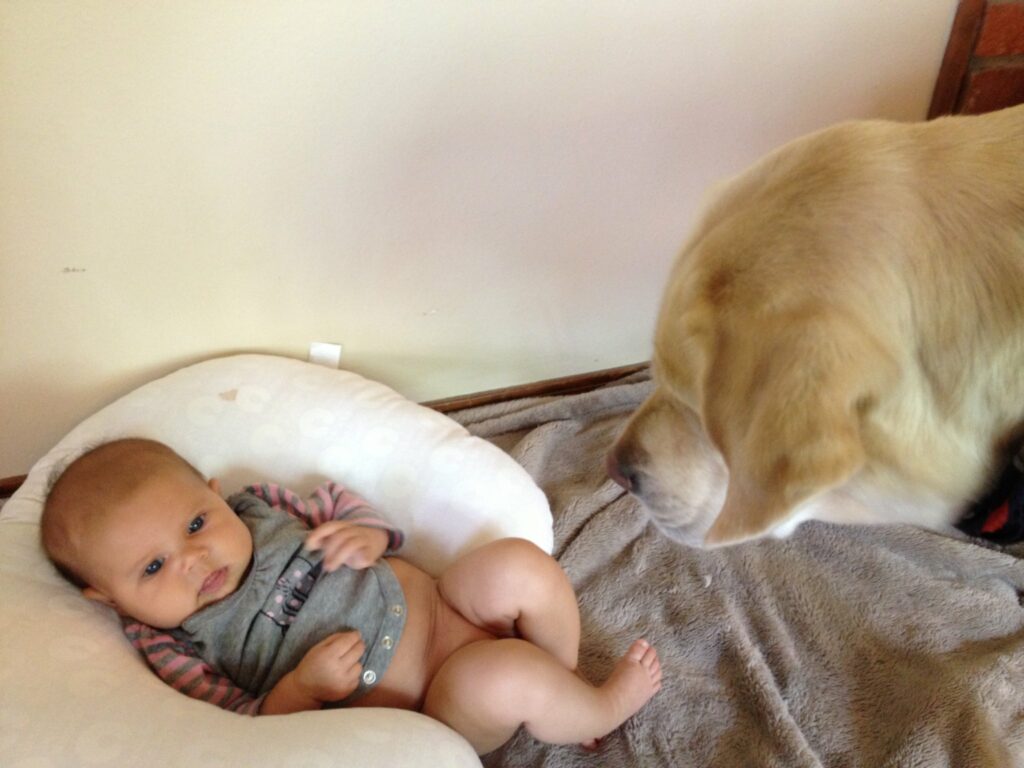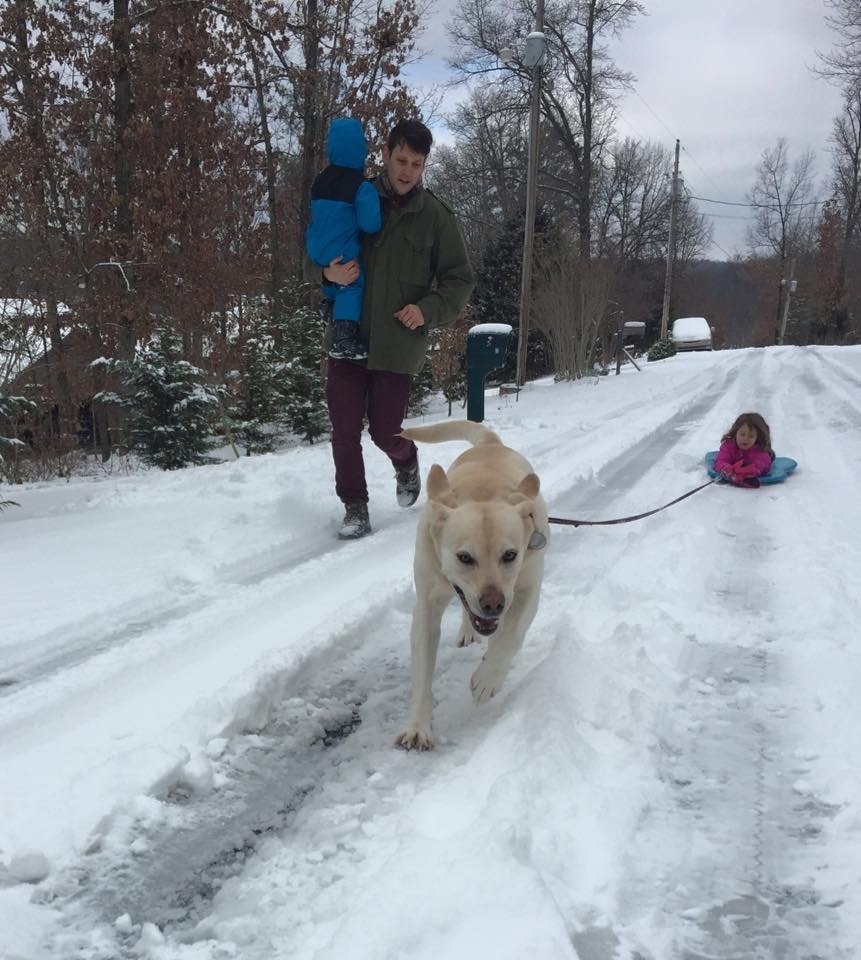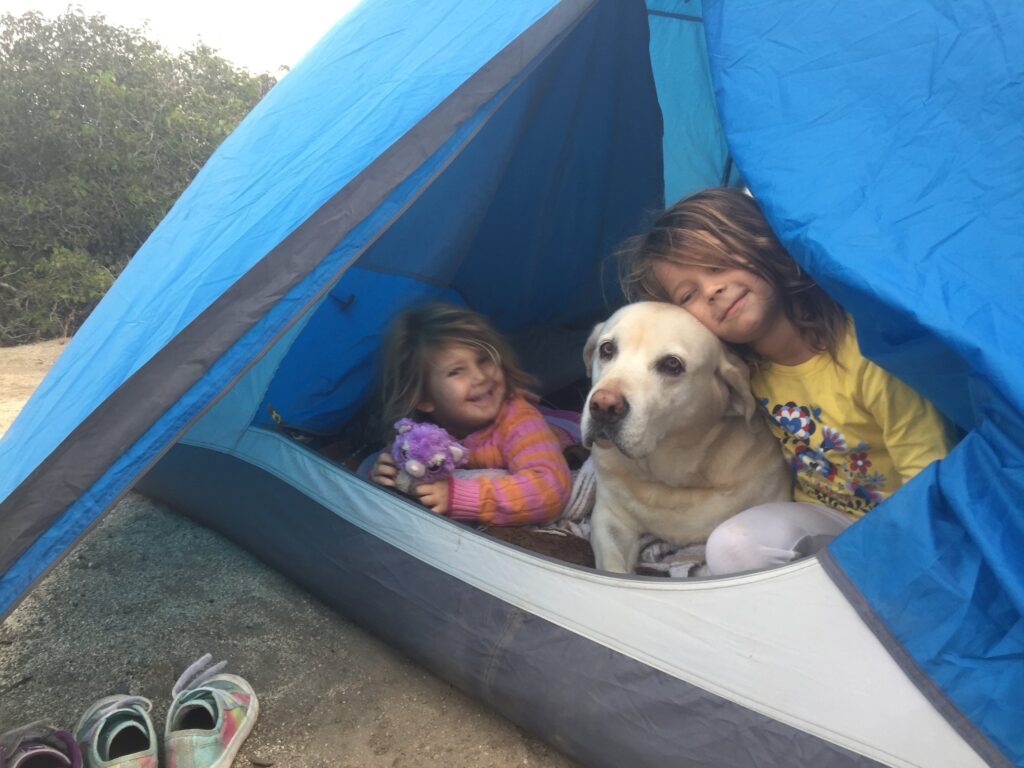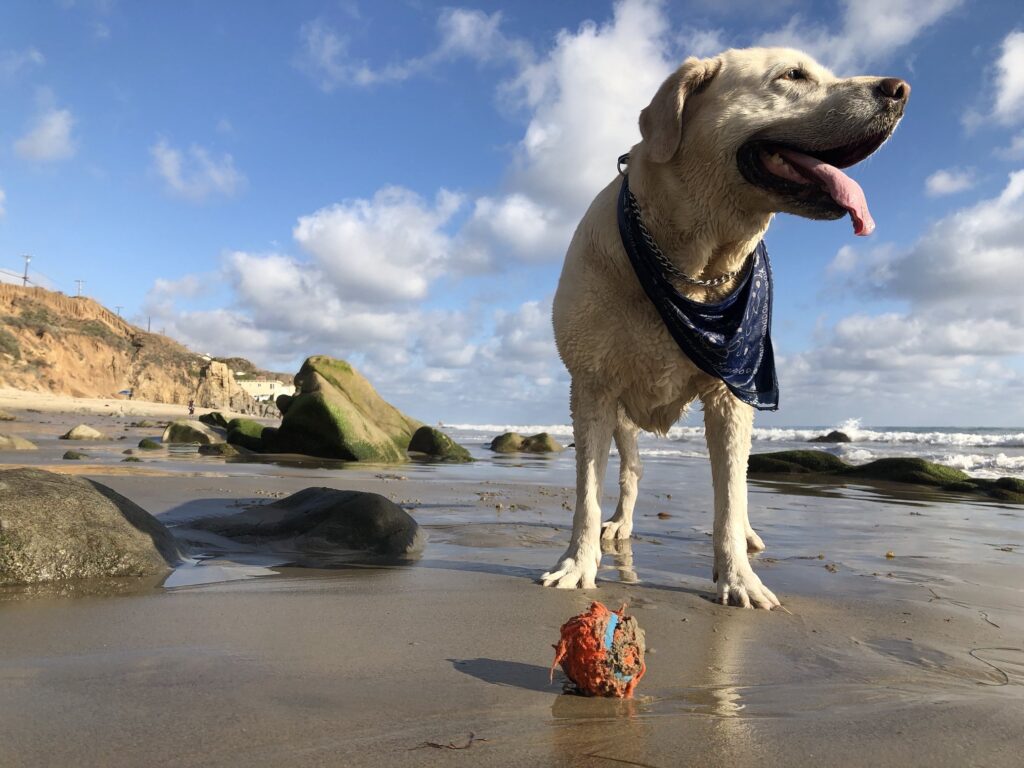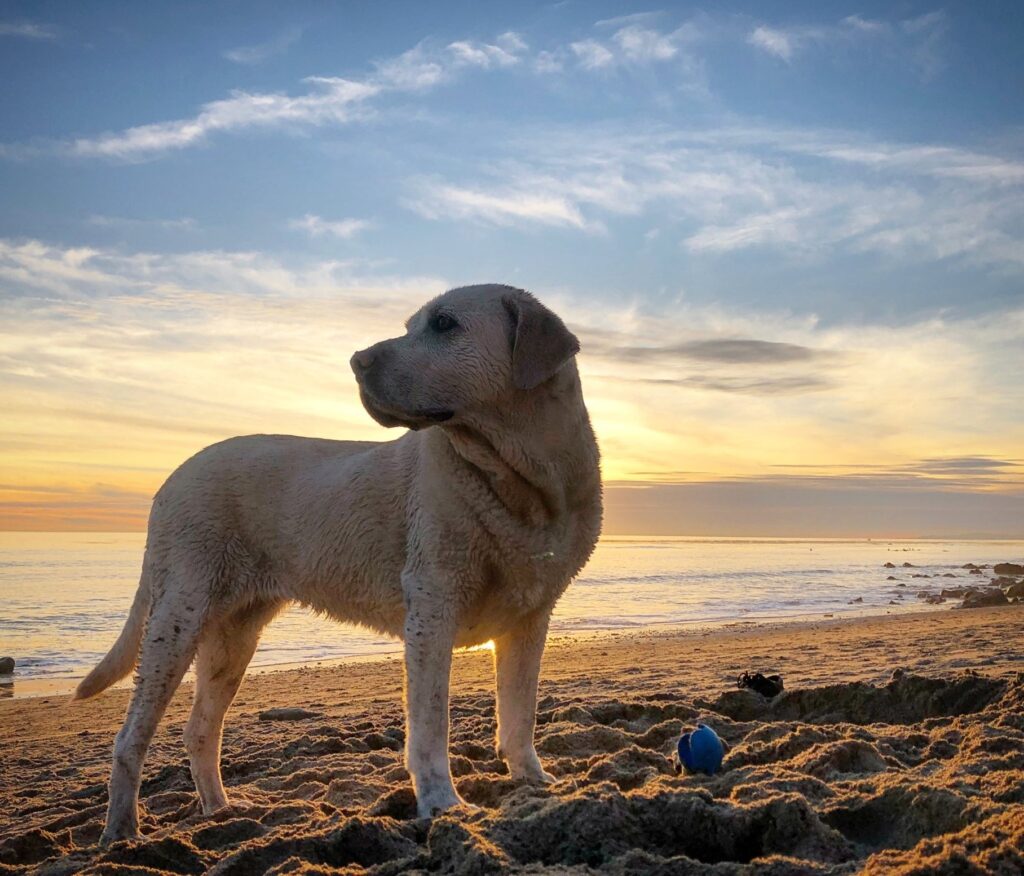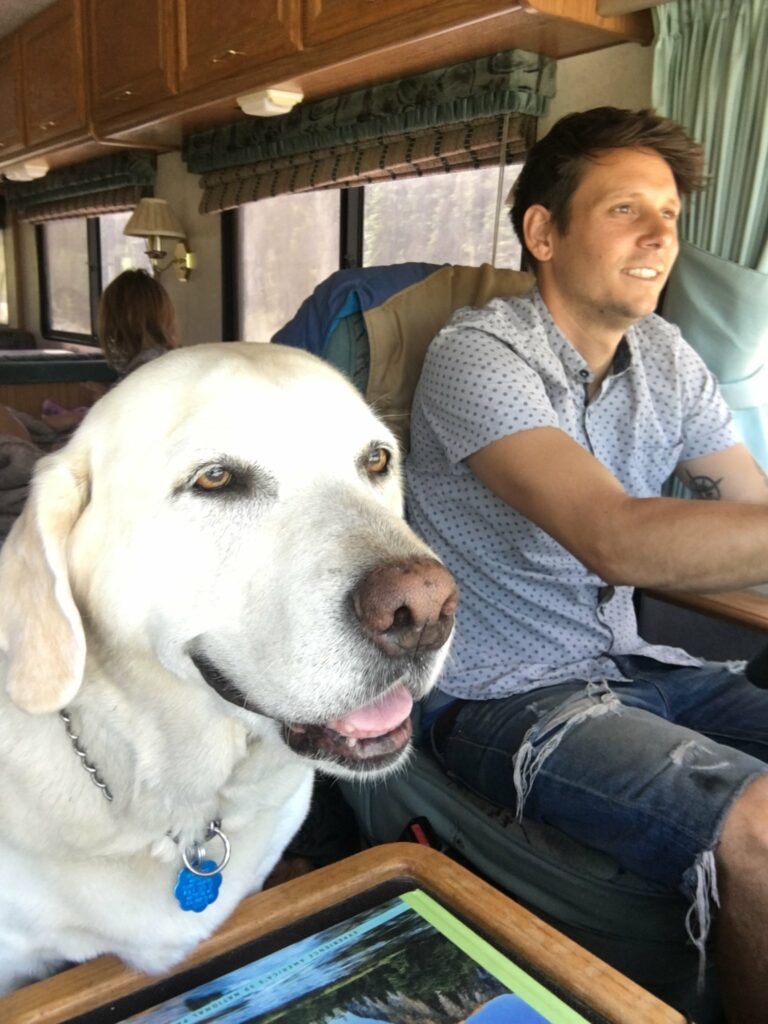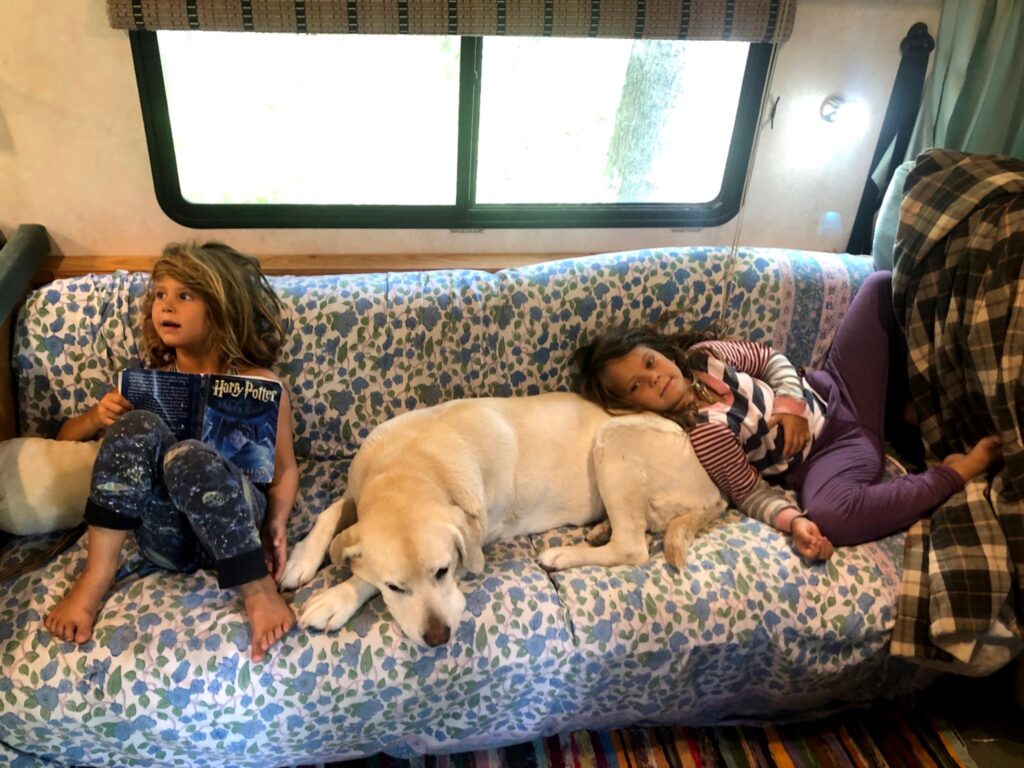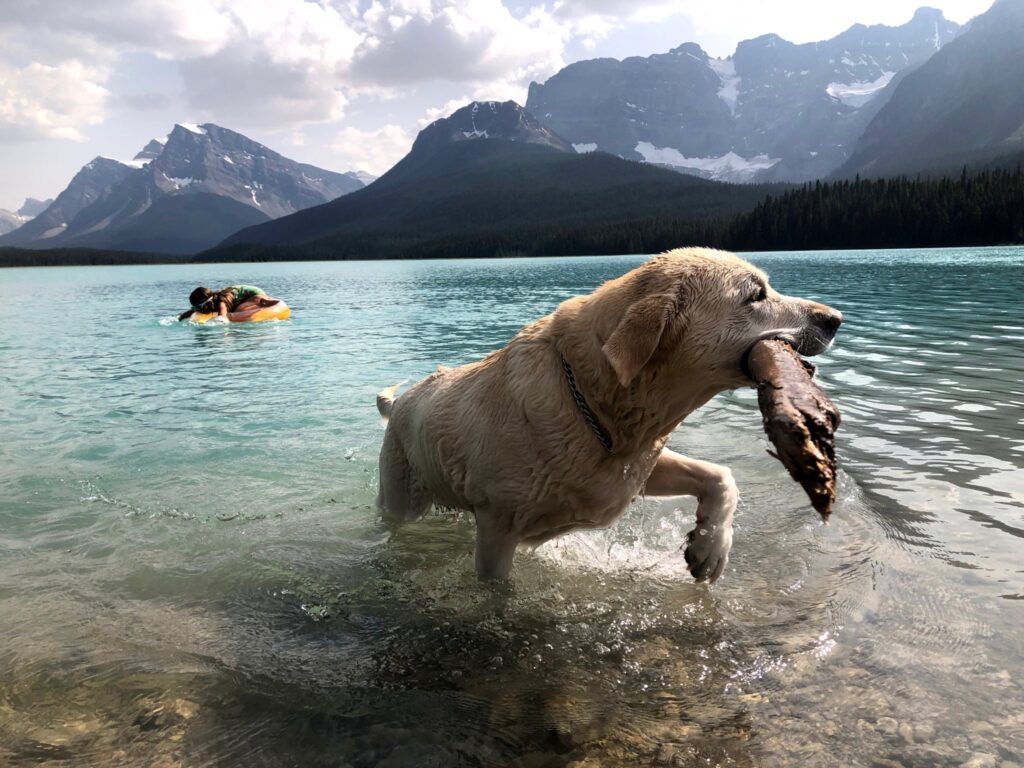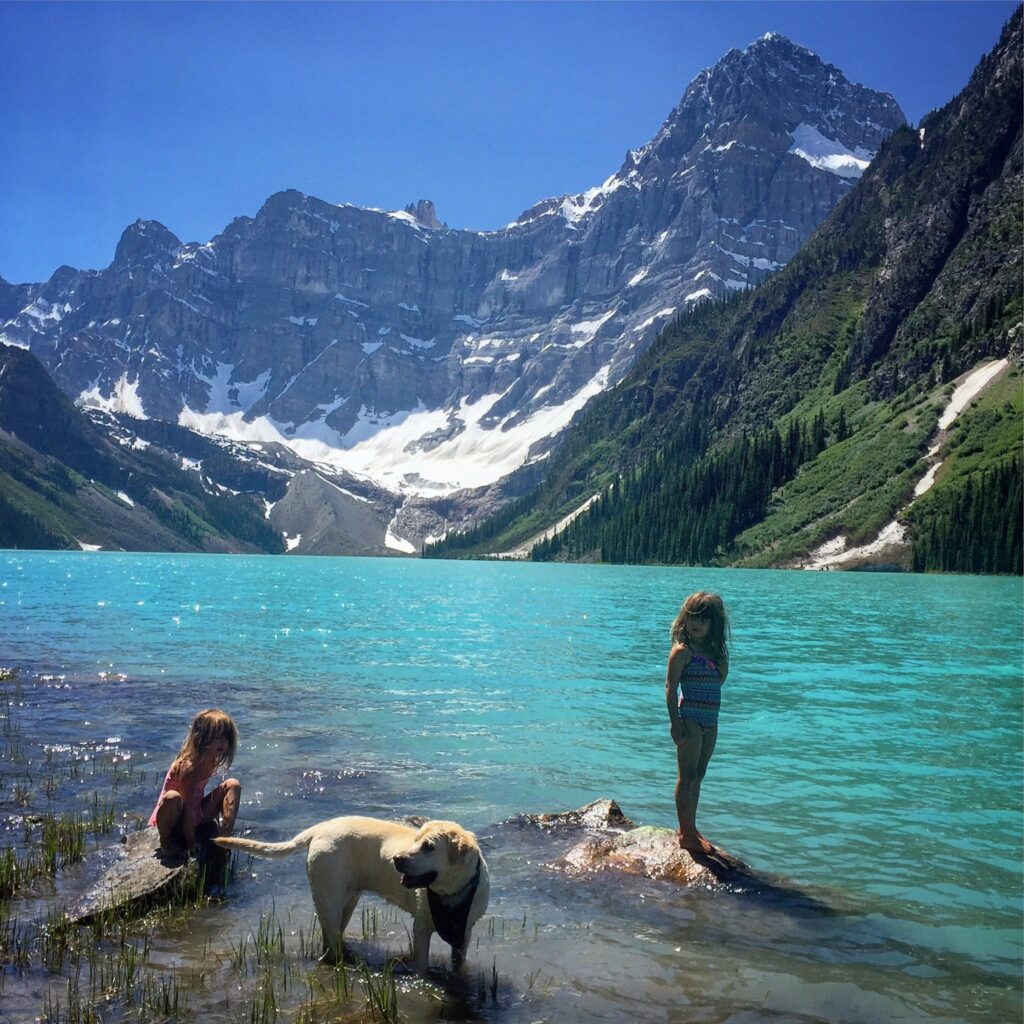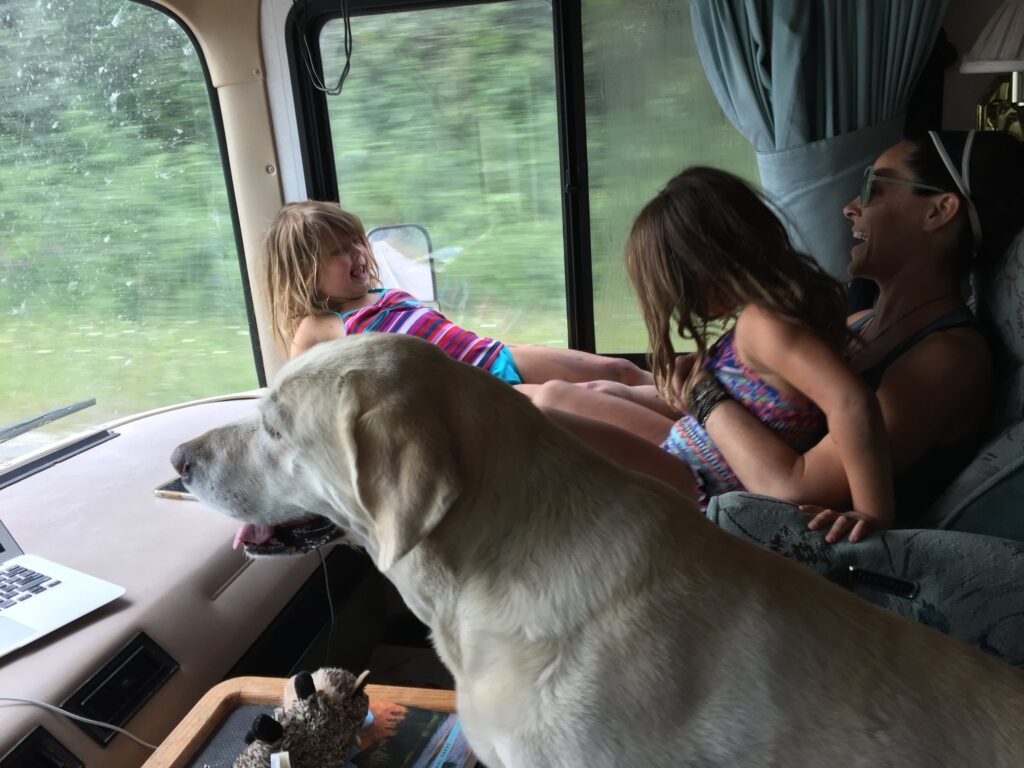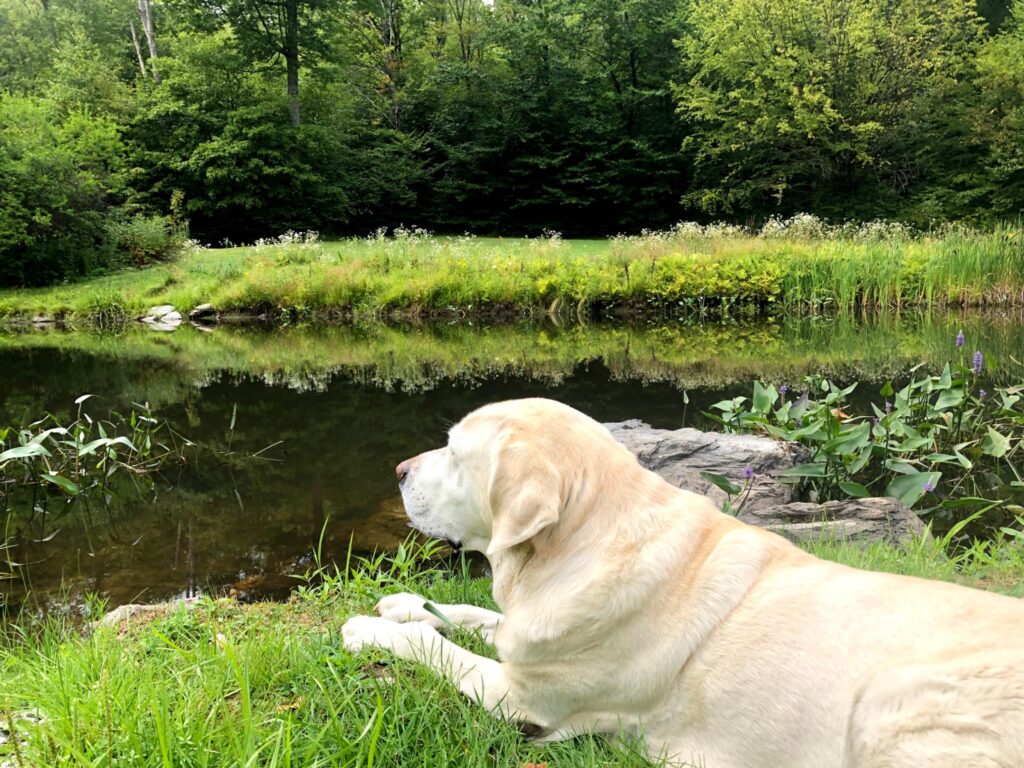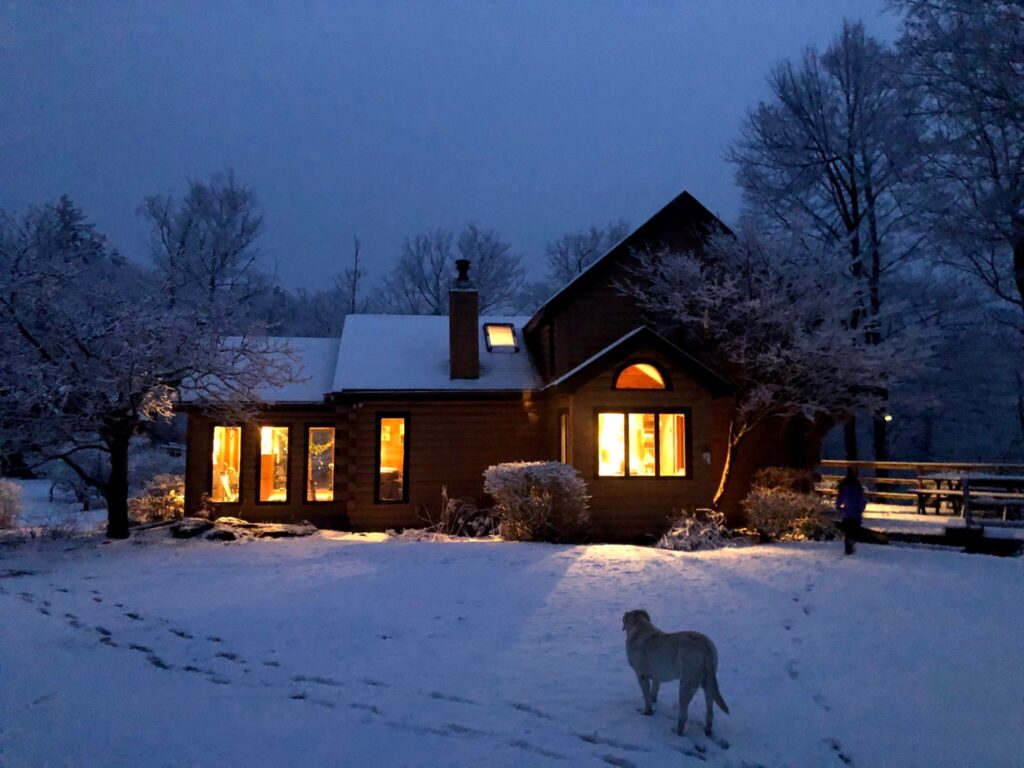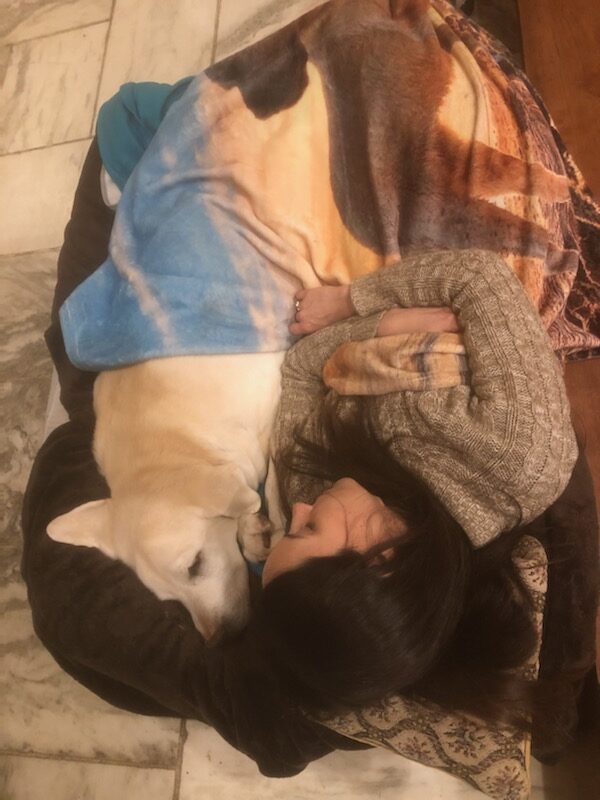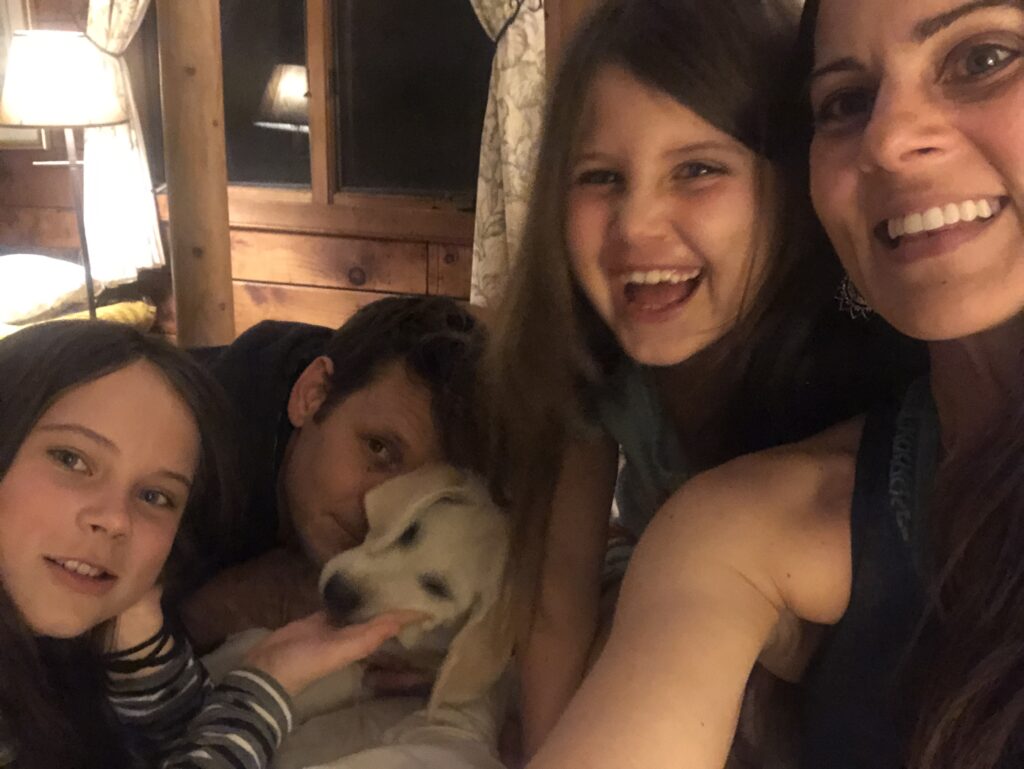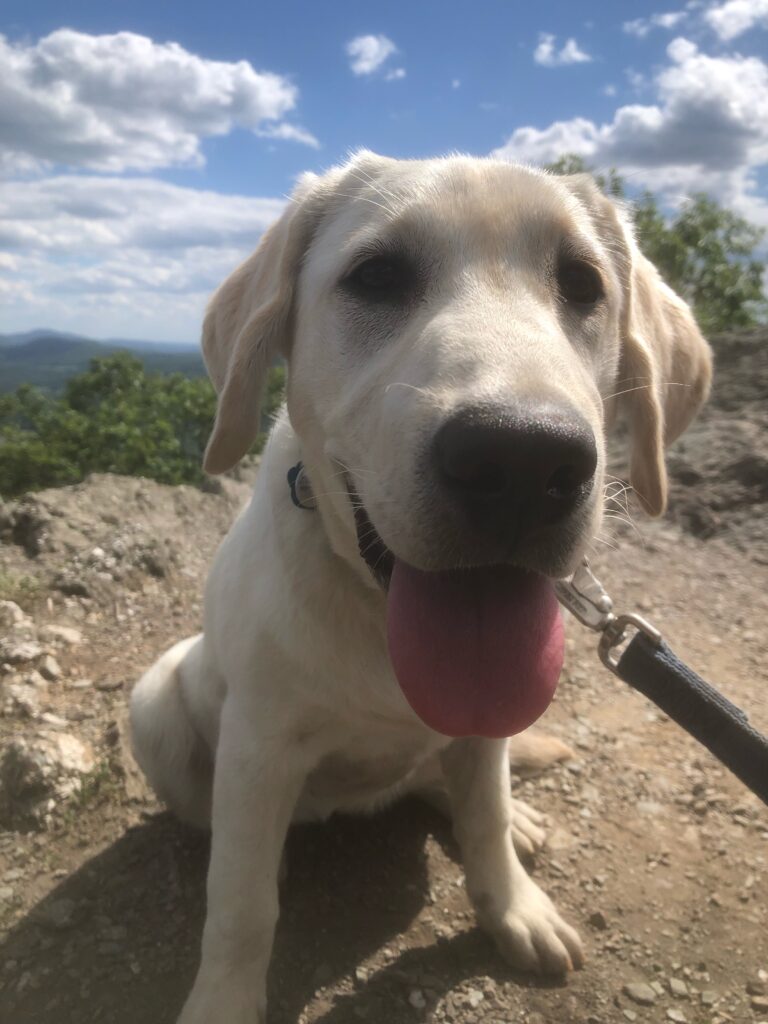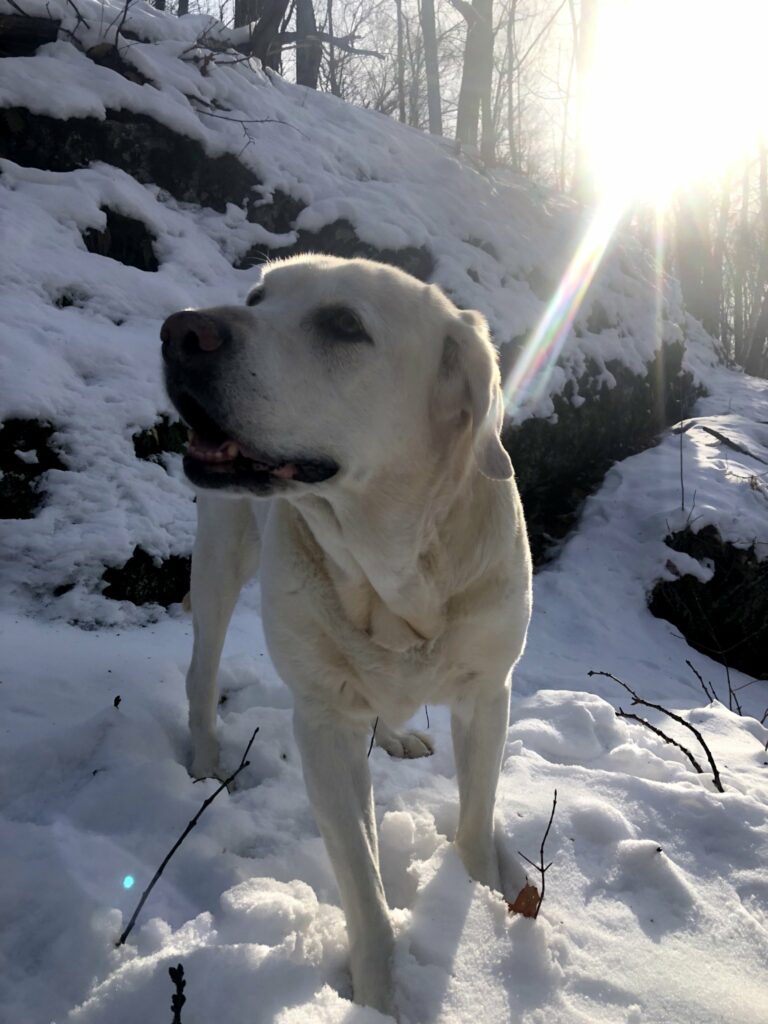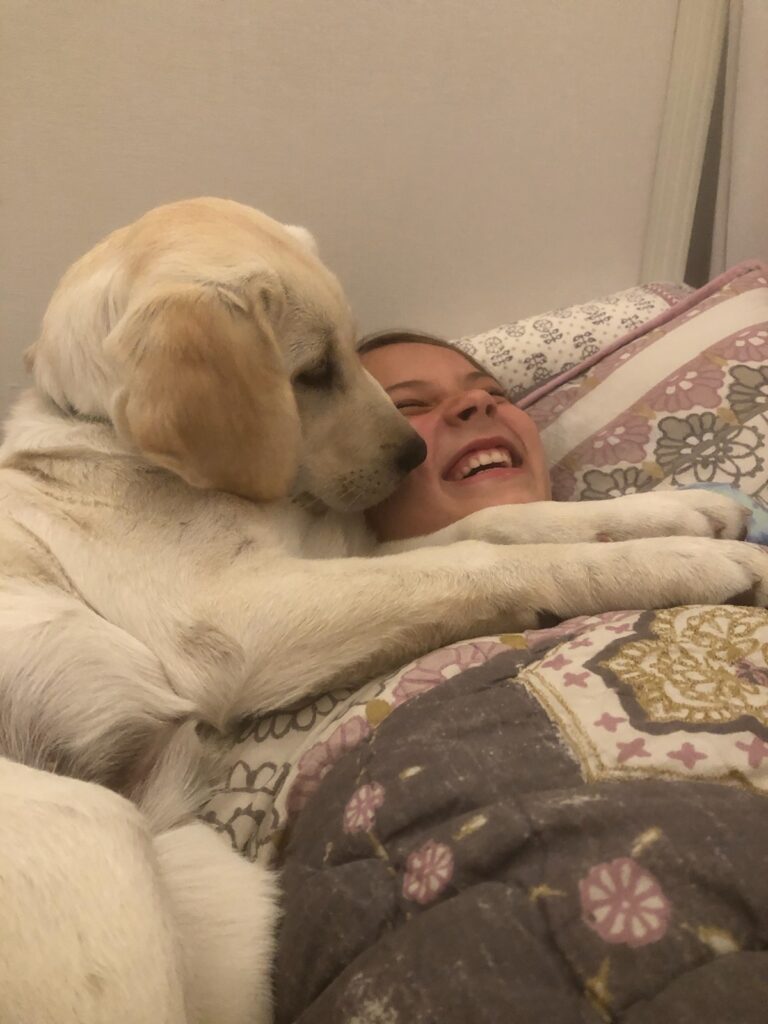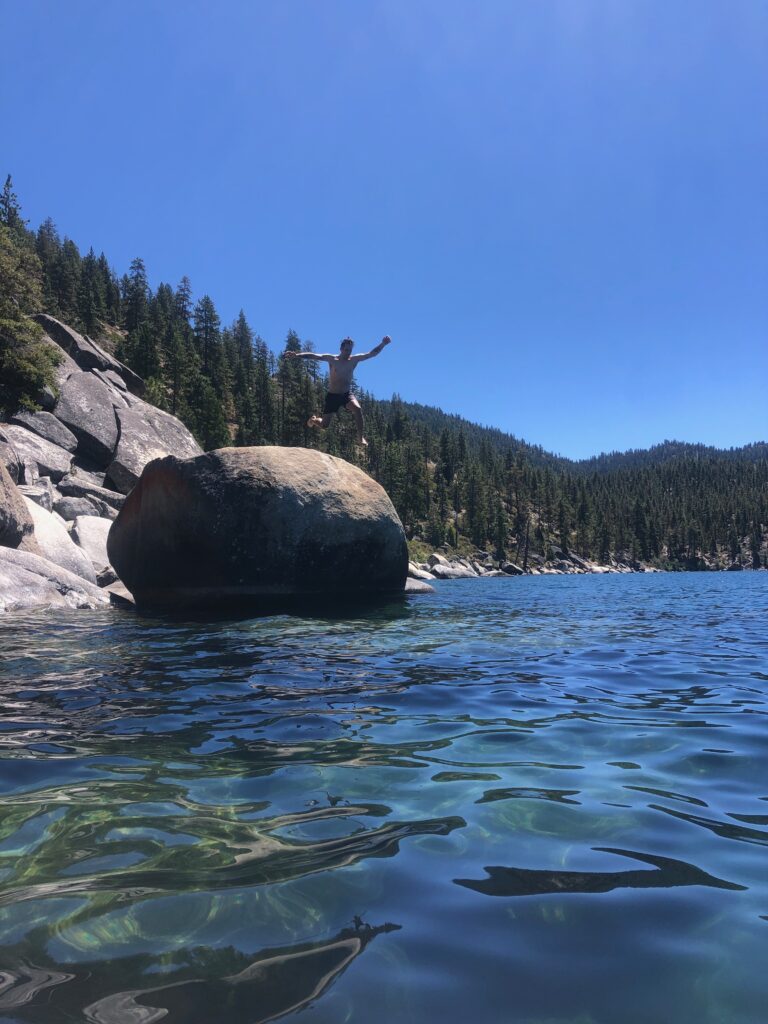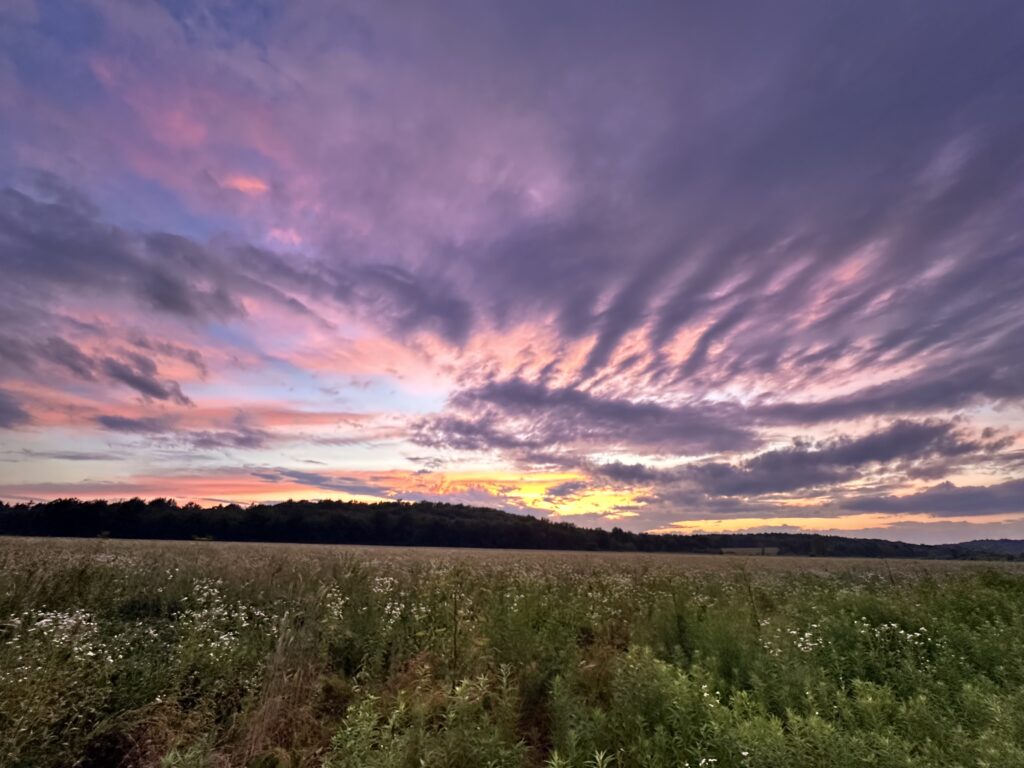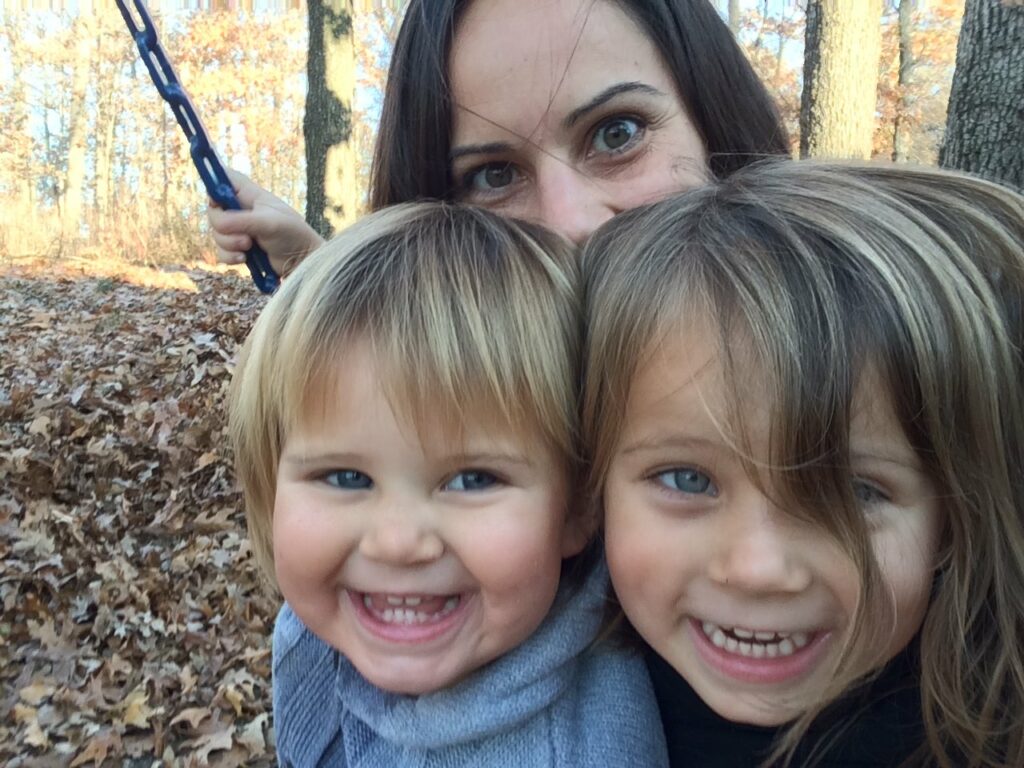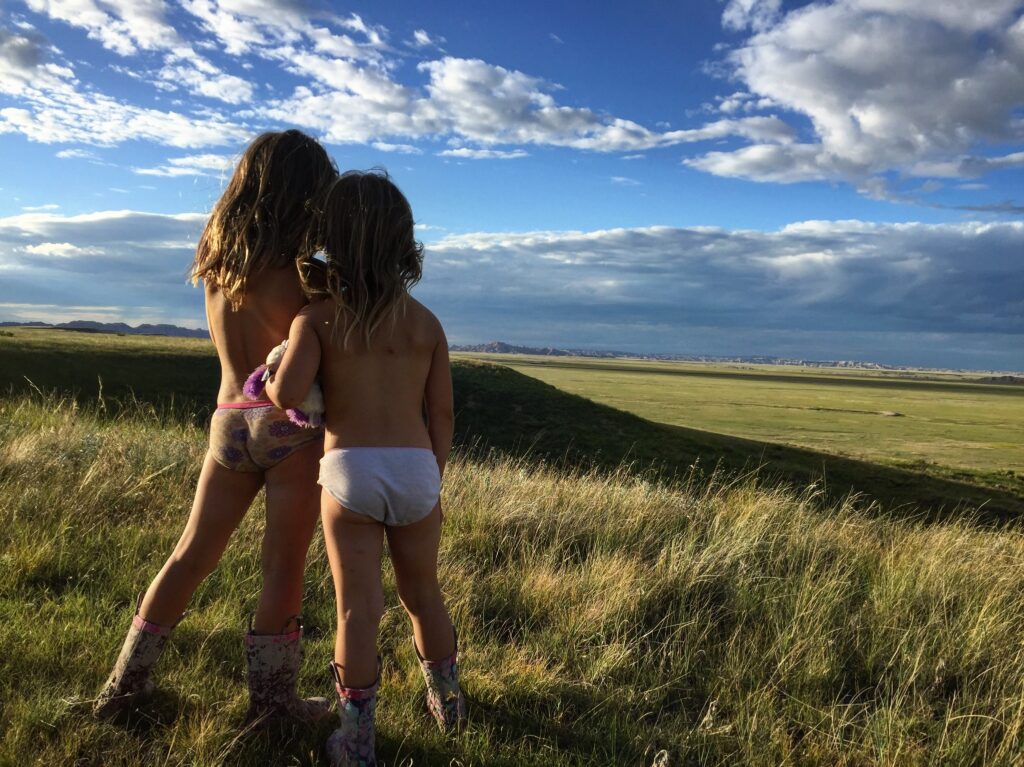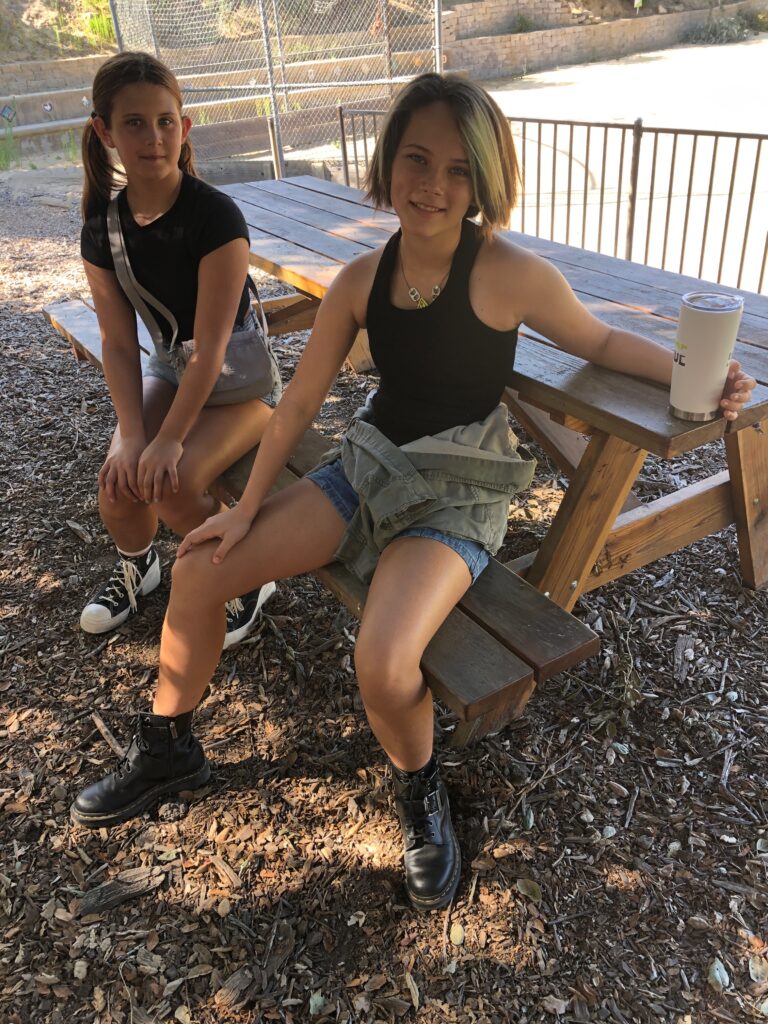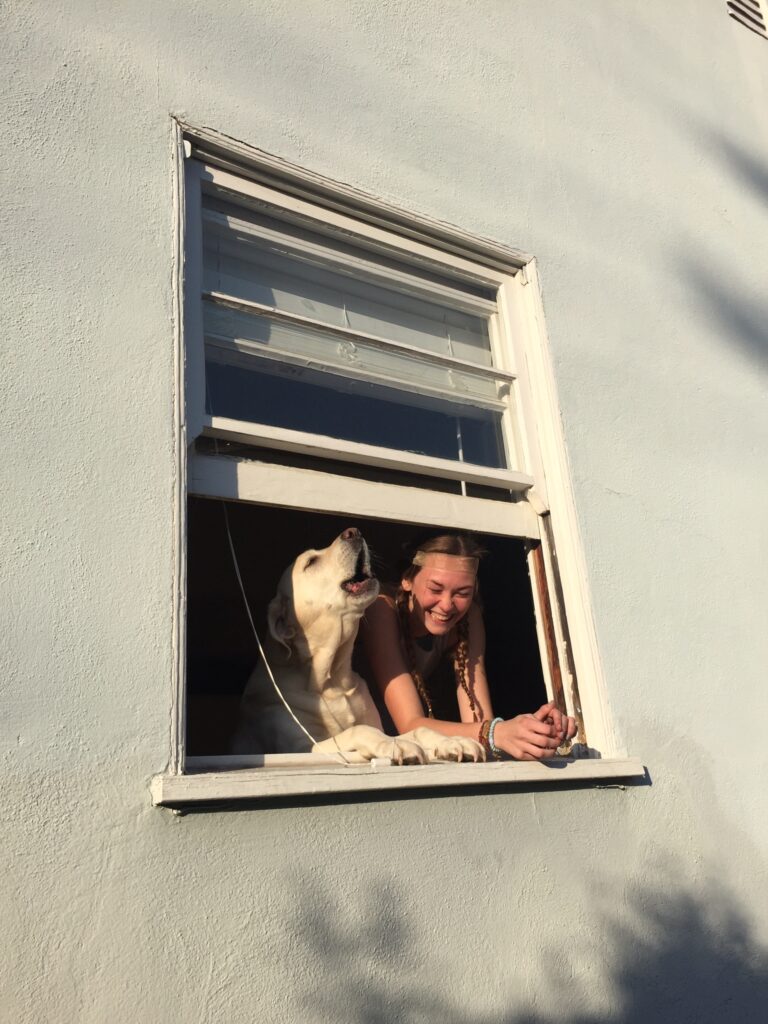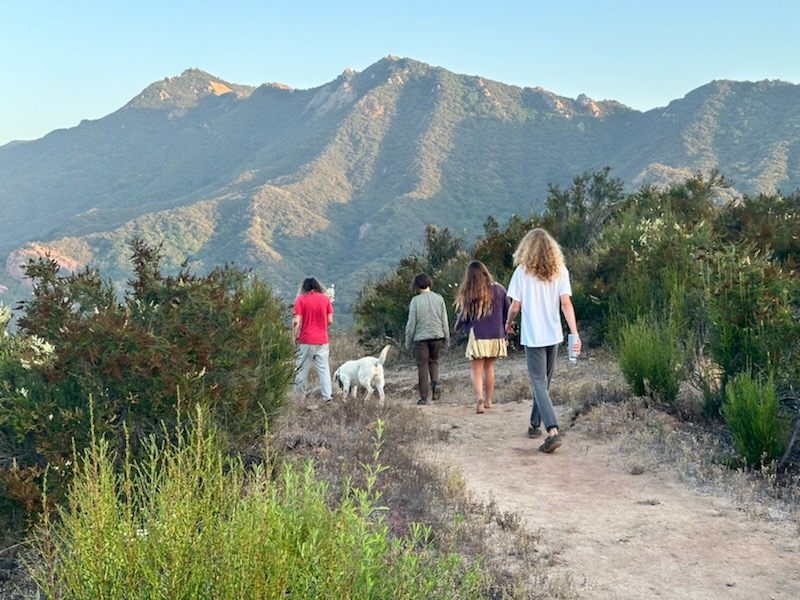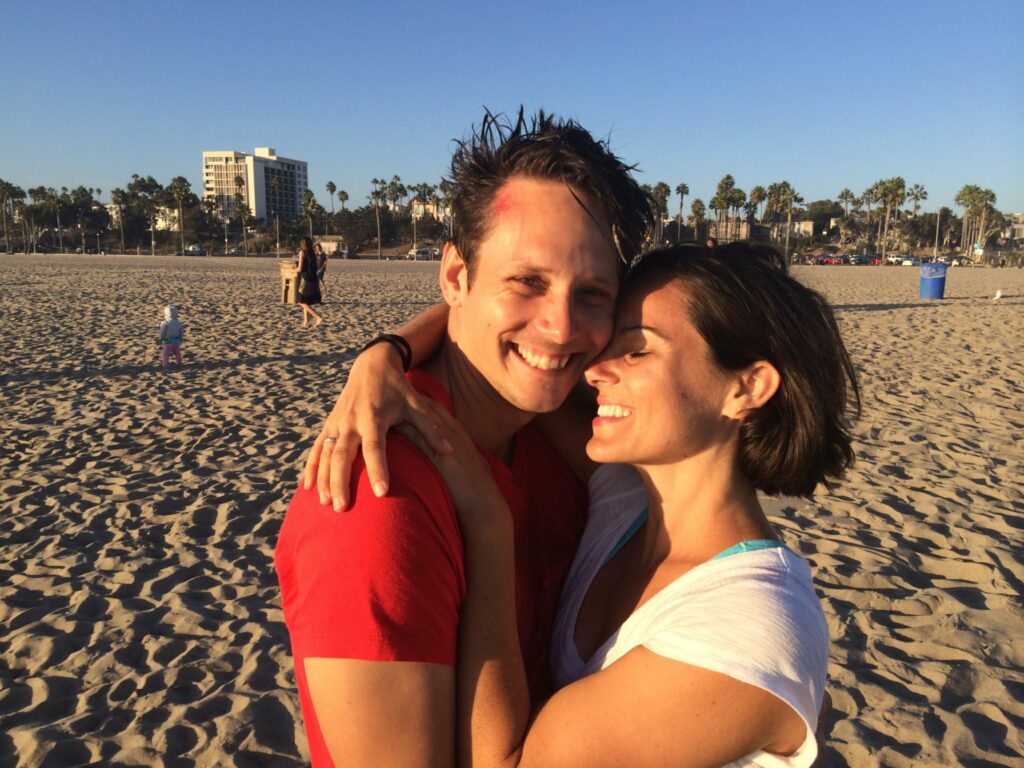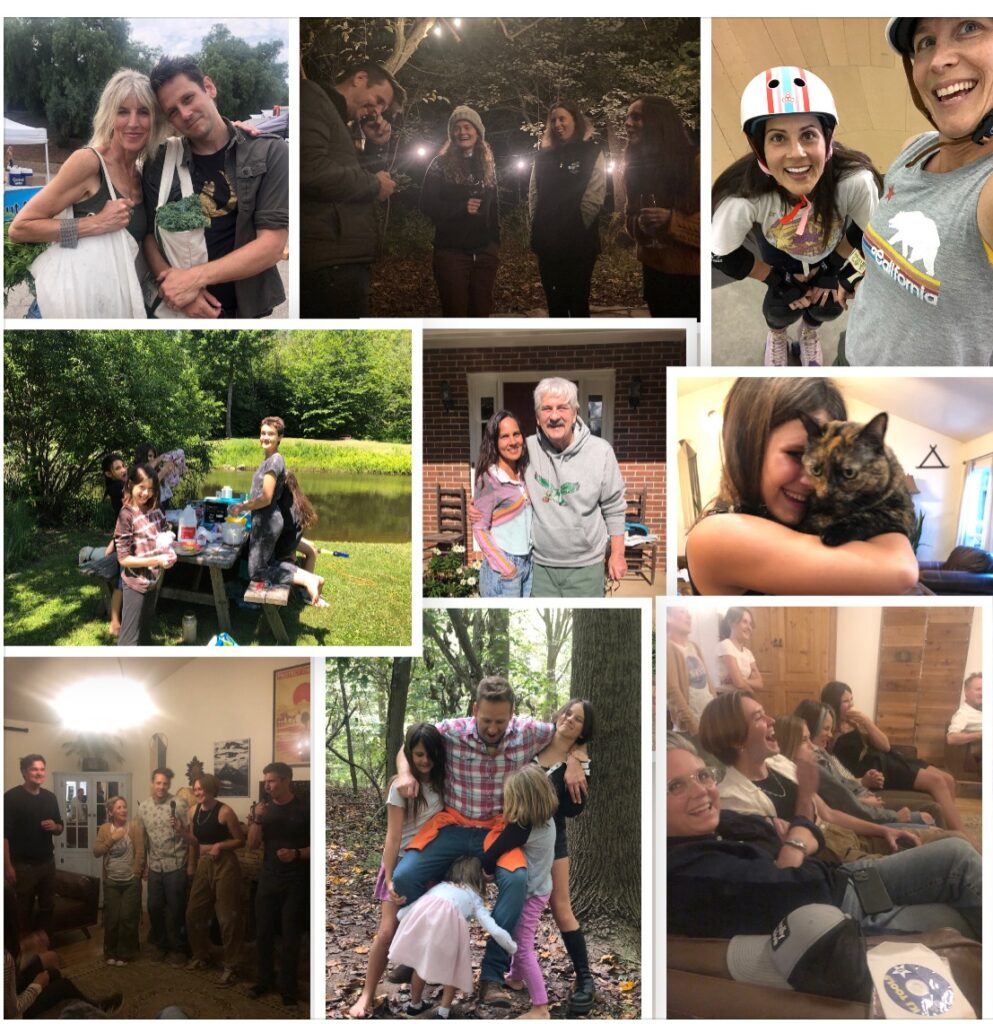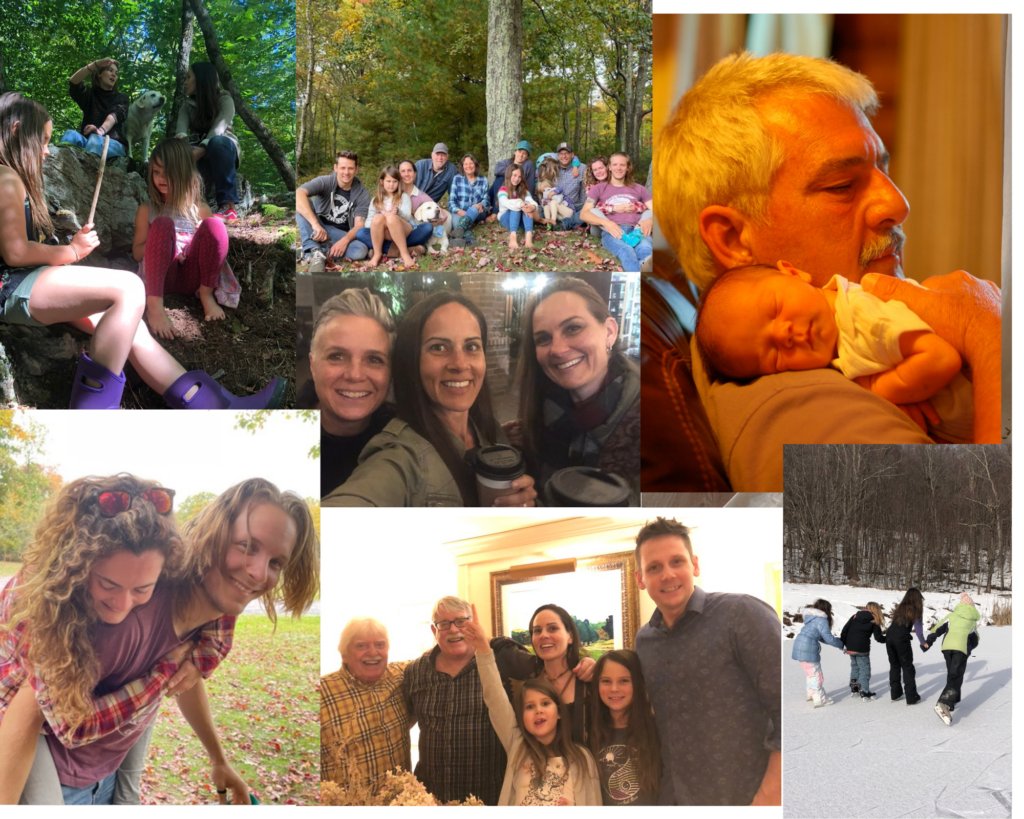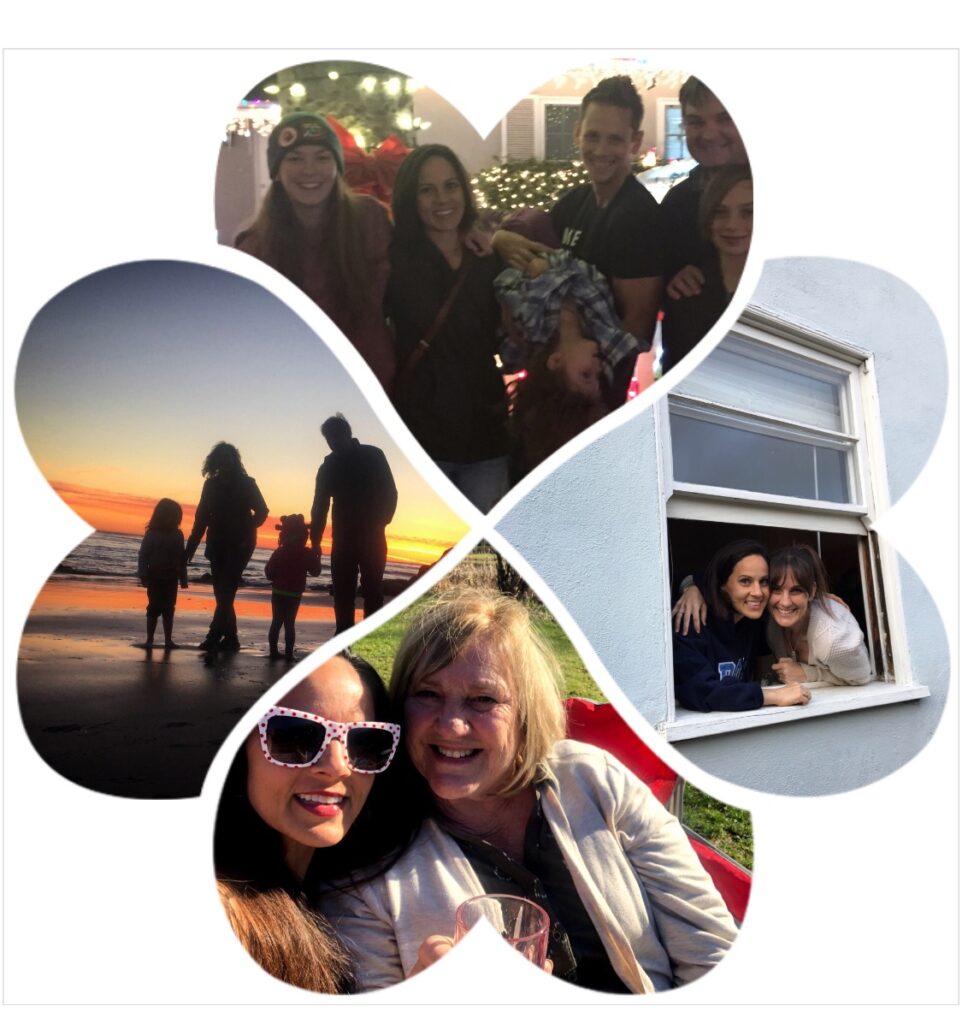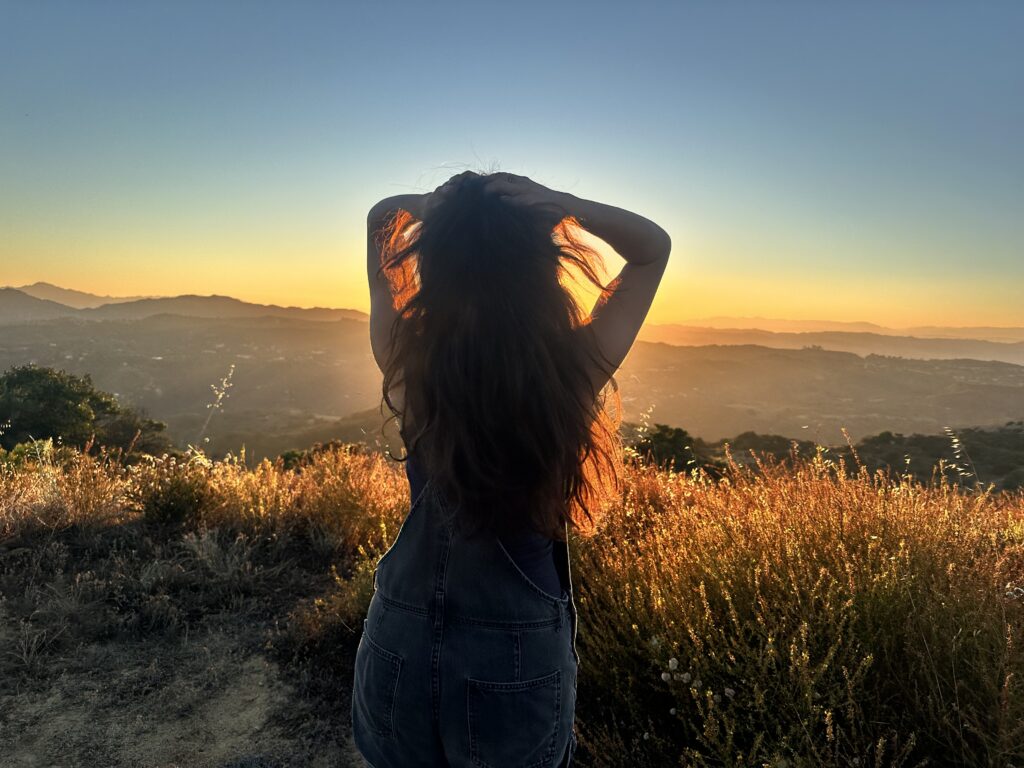“Even shall, we shall…beyond belief.”
Those words have become a mantra for me. Go ahead and read them again:
“Even shall, we shall…beyond belief.”
Yeah, they still don’t make sense, do they?
These are the words that my mom sent during the wildfires of January 2025 to a family text thread while Darby’s family and mine were evacuated together. There were at least two harrowing nights that we all spent wondering if our houses would be ash by morning. In the morning after these dark nights of the soul, my mom sent that sentence in solidarity and support. We all wanted so much to understand and receive these words of supposed wisdom into our hearts.
Unfortunately, though, as we sipped our coffee at the breakfast table with bleary eyes and weary hearts, we murmured these words aloud to one another a few times but could not decode the meaning. We tried putting the emphasis on different words in the sentence. Still, nothing. After about 5 minutes, we had to admit: none of us had the slightest clue what this text meant. Is it a Bible verse? Is it a quote from some great figure in history? Is it a puzzle? A riddle? We all mused and discussed and eventually erupted into giggles and then glorious and much needed laughter. No one knew what the heck it meant, but it surely sounded like something deep. Eventually, one of us had to just call it and text her. “Mom, none of us know what this means. We all feel so uplifted by this statement, regardless.” The irony was that it truly did make us all feel so much better.
As it turns out, it was a typo. She left out a few words and commas, and that is why it sounded profound yet meant nothing. So, obviously, now when one of us is facing a challenge, we like to say, “Even shall, we shall…beyond belief.” And another of us might say, “Amen.”
There are always “even shall” moments at any given point in life, huh? And yet, now, from the safety of a not-on-fire canyon, I look back on that evacuation time as one of the most memorable experiences that our family has from this past year; it wasn’t without its anxiety, its grief, and its absolute heartbreak at all that was being burned and destroyed. But we also played a lot of games, cooked and shared meals, and we laughed (and sometimes cried) together. As the character Ted Lasso said in the locker room after a devastating loss for the Richmond team, “I promise you there is something worse out there than being sad, and that is being alone and being sad. Ain’t nobody in this room alone.” And that was the essence of Evacuation Vacation 2025, as we dubbed the experience.

I suppose that when I leaped back here to Topanga that was at the heart of why. Certainly climate change data doesn’t exactly make it an obvious choice to move from lush, green Vermont to dry, hot southern California. I even joked about that with my friend, Adam, when we returned. “We decided that we’d rather watch the world burn down with you all than get out unscathed but alone” I quipped. To which he replied, “When it does, I’ll bring the marshmallows.” I didn’t realize then that we were just a couple years away from a week of fires unprecedented in their intensity and spread.
My life has been full of a series of leaps the landings of which were unclear at the time of the launch and for the duration of the time suspended in air.
When Collin and I first left our home in Pennyslvania to move to Topanga to see about securing a new “remote work” opportunity, we thought we’d be back in 6 months. That was almost 14 years ago. Upon mentioning this to my friend, Frido, the other night, he posited the question, “if the current version of you could go back to yourself back then, what advice would you give?” And I quickly said, “I don’t think I would give any advice.” A group of us had a very interesting conversation around this idea after that, and there were differing opinions and feelings about it. It’s my thought, though, that any little change would shift the whole trajectory, and then who knows whether all the things I love most about my current life would exist?
If I had known, for example, that while I was in labor with my first child Collin was going to find out that our property manager had been stealing all our rental income and thus send us into a very difficult financial time for the next few years as a result, I might not have thought it was the right time to start having kids. But then—even if we would have eventually had a baby (which wouldn’t have happened if we waited until things weren’t stressful, honestly)— it wouldn’t have been Senya and that means probably no Juniper either if the timeline was shifted. And I would never undo them.
If I had known that Collin starting his real estate business was going to be such a difficult financial journey in general, I might have cautioned him against it. If we hadn’t been in such a difficult financial place, however, we wouldn’t have had the “nothing to lose” attitude that compelled us to pack up and move to Topanga for the hope of a job for Collin. And if he had known how much stress that job was going to be and the degree of vitriol that the boss of that former company was going to spew towards all the employees, he might not have put all the chips on the table to try to get it. But if he wouldn’t have gotten that job, he wouldn’t have had the skills nor developed the expertise that led to his current company which has been a really good thing for him, his colleagues, and our family on professional, financial, and personal levels. We have made some of the best friends we’ve ever had since we moved back here, and we’ve gotten to get even closer to family members and other friends we made during previous Topanga eras. Senya and Juniper have found a school that somehow meets both of their very different needs. They both are flourishing in every way, and I don’t take that for granted.
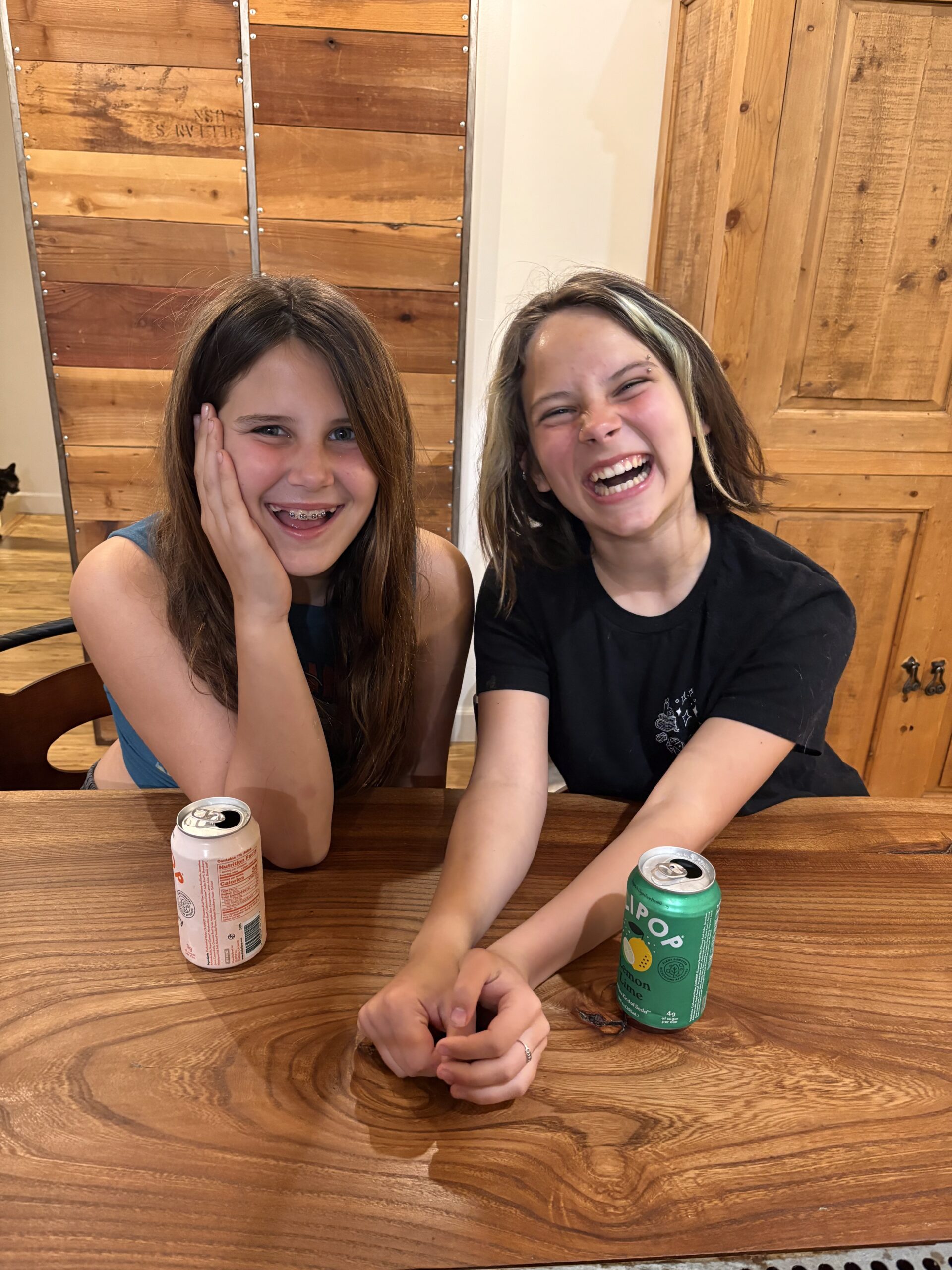
This idea of not labeling things good or bad as life dishes them out is the concept of equanimity. Sometimes it’s easier to not know what the consequences will be to make a bold decision. Informed or not, you have to trust that whatever the path holds, you will have what you need to face the challenges you meet if you commit to continued growth and evolution through each new plot twist. I had a covid-induced epiphany about this principle, and it really changed my life. In fact, it was just after this epiphany that I decided to take the leap to move back to Topanga.
To sum up that epiphany experience: I felt like I was dying; I was in excruciating pain in my lungs. My fever was high, and the migraine it caused inescapable. I couldn’t get out of bed without having to crawl to the bathroom due to how weak I was. In those moments, my existence was pain. And yet, after several days of this, all at once, I my thoughts went something like:
I’m accepting this. Rather than resisting this pain any longer, I choose to accept that this is my reality right now. I’m not going to wince and shrink or fight it. I’m going towards it, and I’m going to embrace that This. Is. Happening. And if I die (like it feels like I may), then so be it. It is the small “I” that dies, the ego. Life itself is a powerful force that doesn’t need me to keep doing its thing. Self is a construct of Life like an individual wave is of the ocean’s vast water. So therefore, if Life Itself will ultimately keep flowing regardless, I don’t have to be afraid of all the little moments of decisions, of pain, of mistakes, of even my death. Life carries on one way or another, and I’m always going to be part of it. And I don’t need to evaluate these moments of experiences as good or bad or right or wrong. It’s just all part of the flow of Life Itself. I can’t choose what happens, but I can choose how I respond. And as long as I look at every new choice and pursuant consequence as a chance to grow and keep aligning with the current of Life Itself, then I can’t F*** this up. And if I’m also not afraid of death because death is not the end, it’s just the end of small me, then there is no fear.
Something unlocked for me after that.
When we stop trying to control outcomes, we can stay present and choose how to respond to what is happening in the moment. If you’ve ever white water rafted on significantly challenging and powerful rapids, you learn this principle well. You stay present because you can’t expend worry for the future or you’ll miss intuiting what to do with this white water now. And now. And now.
Sometimes living courageously and making bold decisions works like this too.
To be clear, though, being ready to take leaps because you can’t F*** it up as long as you’re committed to growth is very different than just steeling yourself and recklessly acting on impulse. The difference lies in the posture and readiness of your mind to stay present as you leap and the commitment to face what ensues with openness.
Two years ago at Woodward West skate camp, my friend, Heather, and I were doing a breakout session on skating backwards down a ramp and then backwards back up another ramp. Our instructor had us practice towards the base of the ramps to keep the risk low at first, but then she was like “does anyone want to try from the top?” And one very under prepared and unskilled skater was amped up and skated to the top and shouted, “WHO BELIEVES IN ME?!!!” A whole lot of the other skaters cheered and furthered the hype while Heather and I exchanged a furtive yet mutual glance of doubt and concern. 30 seconds later, the skater full- on broke her ankle. Badly. She had to go the hospital and leave skate camp on the first night.
That moment comes back to me whenever I think of the difference between acting on impulse recklessly and embracing equanimity.

There’s a moment in park skating when you stand on the coping or at the edge of a ramp or bowl, and for me, it’s the opposite of steeling myself. Rather than a hyped up “who believes in me?” moment, it’s a moment of readiness to stay present with the adrenaline coursing through my body as I find my center. When you’re ready to stay present with the fear and do it anyway, then you’re ready to take the risk. If you have to steel yourself, check out, ignore the fear, distract yourself from it, etc—then you’re probably not ready for the leap. You’re ready when you believe in yourself—that you’re ready to meet what lies ahead with reverence for the path. The path presents boulders, flooded or snow-covered trails, extreme weather conditions, and sometimes unexpected grizzly bears eating an elk that a pack of wolves fell just around the bend. It also presents glorious sunsets, an otherwise dark night sky brilliant with the milky way, cascading waterfalls, fern-covered forest floors, and unexpected grizzly bears just around the bend eating an elk that a pack of wolves fell (in the true spirit of equanimity, I don’t know where to place that last example because it happened to me in real life and it was both terrifying and amazing). We can’t predict or control the path, but we do get to choose how we respond to these experiences and how we let them shape us.
When making a huge life leap, you’re ready when you’re open to facing the unknown. When Collin and I were trying to decide if it was the right time to have kids, he said, “do you feel ready?” And I said, “No, but I think I’d say that I feel ready to not be ready and embrace it anyway.” And that’s how I knew I was ready. To not be ready.
I’ll never forget one time I was on the phone with my mom discussing the pros and cons of making a bold life move and she said, “you’ll know which path to take because you’ll have peace about it.” And, frankly, I was a bit annoyed about that because I wanted specific directives and not wisdom. So, I said to Collin after I hung up the phone, “it doesn’t always work like that. I can’t always have peace about something that is by definition nervewracking! Moving across the country from a city to a rural mountaintop is terrifying! I can’t predict anything that I will feel about that because I can’t predict anything that will happen! The only thing that I can control for sure is that, if we do move to Vermont, I promise to grow closer through whatever challenges lie ahead.” And then he said, “I can promise to grow closer to you through whatever lies ahead for sure.” And then I was like, “Okay, well then in that framework, I actually do really feel excited and peaceful about that new adventure.” And then I immediately said, “Crap. My mom was right.”
“Even shall, we shall…beyond belief.”
We can’t always find our peace in a specific decision, but we can find our peace when we decide how we will respond. We can commit to how we want to let life shape us. We can let the small ego diminish and remember that we are part of something much bigger—the powerful Life force that resulted in the creation of everything that is. And, with that in mind, regarding whatever lies ahead, you can’t f*** it up.
This post is dedicated to my niece, Lyric, who is on a bold, new adventure.
